Brainy Thought – Inclusive leadership
July 20th, 2011“None of us is as smart as all of us”
Japanese Proverb
Thoughts for the day.
Top dog food.
“None of us is as smart as all of us”
Japanese Proverb
“Art washes away from the soul the dust of everyday life.”
Pablo Picasso (1881 – 1973)
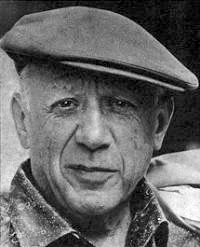
Spanish painter, draughtsman, and sculptor. Commonly known simply as Picasso, he is one of the most recognized figures in 20th-century art. He is best known for co-founding the Cubist movement and for the wide variety of styles embodied in his work.
“To be sure of hitting the target, shoot first, and call whatever you hit the target.”
Ashleigh Brilliant (Ashley Brilliant)
“If I have seen further it is by standing on the shoulders of Giants.”
Sir Isaac Newton (1643 – 1727) English physicist, mathematician, astronomer, alchemist, inventor and natural philosopher. He is often regarded as the most influential scientist in history and is best known for discovering the Laws of Gravity.


“The time for action is past! Now is the time for senseless bickering!”
Brainy Quotes by: Ashleigh Brilliant (Ashley Brilliant)
“My life has been greatly influenced by many books which I have never read.”
Brainy Quotes by: Ashleigh Brilliant (Ashley Brilliant)
“I am irrevocably committed to being permanently indecisive.”
Brainy Quotes by: Ashleigh Brilliant (Ashley Brilliant)
“I have you, you have me. At least one of us is lucky.”
Brainy Quotes by: Ashleigh Brilliant (Ashley Brilliant)
“Some of my troubles are so familiar, I know them by their first names.”
Brainy Quotes by: Ashleigh Brilliant (Ashley Brilliant)
“Catch a man a fish, and you can sell it to him. Teach a man to fish, and you ruin a wonderful business opportunity.”
Author: Karl Heinrich Marx (May 5, 1818, Trier, Prussia – March 14, 1883, London) was a German philosopher, political economist, and revolutionary.
Marx addressed a wide range of issues; he is most famous for his analysis of history, summed up in the opening line of the introduction to the Communist Manifesto (1848): “The history of all hitherto existing society is the history of class struggles.” Marx believed that capitalism would be replaced by communism.
The time for action is past! Now is the time for senseless bickering!
Famous Quote by: Ashleigh Brilliant (Ashley Brilliant)
My life has been greatly influenced by many books which I have never read.
Famous Quote by: Ashleigh Brilliant (Ashley Brilliant)
I am irrevocably committed to being permanently indecisive.
Famous Quote by: Ashleigh Brilliant (Ashley Brilliant)
I have you, you have me. At least one of us is lucky.
Famous Quote by: Ashleigh Brilliant (Ashley Brilliant)
Some of my troubles are so familiar, I know them by their first names.
Famous Quote by: Ashleigh Brilliant (Ashley Brilliant)
Time will end all my troubles, but I don’t always approve of Time’s methods.
Famous Quote by: Ashleigh Brilliant (Ashley Brilliant)
All I want is a warm bed, a kind word and unlimited power.
Famous Quote by: Ashleigh Brilliant (Ashley Brilliant)
Try to be the best of what you are, even if what you are is no good.
Famous Quote by: Ashleigh Brilliant (Ashley Brilliant)
I have many unrecognized talents, but my faults have somehow succeeded in securing wide recognition.
Famous Quote by: Ashleigh Brilliant (Ashley Brilliant)
Dragons love you. You’re crunchy and good with ketchup.
Famous Quote by: Ashleigh Brilliant (Ashley Brilliant)
History may never have all the facts, but history always has the last word.
Famous Quote by: Ashleigh Brilliant (Ashley Brilliant)
Sometimes the only way you can win is to stay out of the game.
Famous Quote by: Ashleigh Brilliant (Ashley Brilliant)
By accepting you as you are, I do not necessarily abandon all hope of your improving.
Famous Quote by: Ashleigh Brilliant (Ashley Brilliant)
How can I be sure I’ve succeeded, if I can’t remember what I was trying to do.
Famous Quote by: Ashleigh Brilliant (Ashley Brilliant)
One problem I have definitely solved is the problem of not having enough to worry about.
Famous Quote by: Ashleigh Brilliant (Ashley Brilliant)
To be sure of hitting the target, shoot first, and call whatever you hit the target.
Famous Quote by: Ashleigh Brilliant (Ashley Brilliant)
I feel much better, now that I’ve given up hope.
Famous Quote by: Ashleigh Brilliant (Ashley Brilliant)
All I want is a little more than I’ll ever get.
Famous Quote by: Ashleigh Brilliant (Ashley Brilliant)
I waited and waited, and when no message came, I knew it must have been from you.
Famous Quote by: Ashleigh Brilliant (Ashley Brilliant)
Beware! I’m acting under the influence of human nature.
Famous Quote by: Ashleigh Brilliant (Ashley Brilliant)
Accept me for what I am, completely unacceptable.
Famous Quote by: Ashleigh Brilliant (Ashley Brilliant)
The reports on human progress are beginning to come in, and some are a little discouraging.
Famous Quote by: Ashleigh Brilliant (Ashley Brilliant)
Life may have no meaning — or even worse, it may have a meaning of which I disapprove.
Famous Quote by: Ashleigh Brilliant (Ashley Brilliant)
Cheer up! The worst effects of what we’re doing won’t be felt until after we’re all dead
Famous Quote by: Ashleigh Brilliant (Ashley Brilliant)
I’ve learned to accept birth and death . . . but sometimes I still worry about what lies between.
Famous Quote by: Ashleigh Brilliant (Ashley Brilliant)
I can only do one thing at a time, but I can avoid doing many things simultaneously.
Famous Quote by: Ashleigh Brilliant (Ashley Brilliant)
The longer I live, the less chance I’ll ever recover from what life keeps doing to me.
Famous Quote by: Ashleigh Brilliant (Ashley Brilliant)
If you can’t learn to do it well, learn to enjoy doing it badly.
Famous Quote by: Ashleigh Brilliant (Ashley Brilliant)
My life has a superb cast but I can’t figure out the plot.
Famous Quote by: Ashleigh Brilliant (Ashley Brilliant)
One thing you can rely on is that there will always be uncertainty.
Famous Quote by: Ashleigh Brilliant (Ashley Brilliant)
There ought to be a better way than government to run the world.
Famous Quote by: Ashleigh Brilliant (Ashley Brilliant)
Unless you move, the place where you are is the place where you will always be.
Famous Quote by: Ashleigh Brilliant (Ashley Brilliant)
It’s hard to face tomorrow, but it’s easier than facing no tomorrow.
Famous Quote by: Ashleigh Brilliant (Ashley Brilliant)
I understood most of your message, but would you mind repeating the last scream?
Famous Quote by: Ashleigh Brilliant (Ashley Brilliant)
There may not be a Heaven, but there is a San Francisco.
Famous Quote by: Ashleigh Brilliant (Ashley Brilliant)
The entire universe will eventually disintegrate but by then I hope to be in a safer place.
Famous Quote by: Ashleigh Brilliant (Ashley Brilliant)
Everything takes longer than you expect, even when you expect it to take longer than you expect.
Famous Quote by: Ashleigh Brilliant (Ashley Brilliant)
My success lies in having achieved a record numbers of failures.
Famous Quote by: Ashleigh Brilliant (Ashley Brilliant)
My biggest problem is what to do about all the things I can’t do anything about.
Famous Quote by: Ashleigh Brilliant (Ashley Brilliant)
Watch out! It’s quite possible that some of my best mistakes haven’t yet been made.
Famous Quote by: Ashleigh Brilliant (Ashley Brilliant)
It’s sometimes easier to do the impossible than to do the embarrassing.
Famous Quote by: Ashleigh Brilliant (Ashley Brilliant)
I like who I am, and am puzzled to find that not everybody shares this opinion.
Famous Quote by: Ashleigh Brilliant (Ashley Brilliant)
If I do enough different things in enough different ways, I may, eventually, do something right.
Famous Quote by: Ashleigh Brilliant (Ashley Brilliant)
Some people can find all the peace of mind they need in a good, satisfying conflict.
Famous Quote by: Ashleigh Brilliant (Ashley Brilliant)
What I need is a lawyer who specializes in the law of the jungle.
Famous Quote by: Ashleigh Brilliant (Ashley Brilliant)
Cling to your insecurity, in this world, it’s the only thing you can be sure of.
Famous Quote by: Ashleigh Brilliant (Ashley Brilliant)
In one sense, I have always felt glad to have had the war [World War II] in my childhood, because, as a result, nothing that has happened in the world since then has ever seemed quite so bad. On the other hand, I never entirely got over my feeling of being cheated when the promised era of peace in a wonderful “post-war world” failed to materialize. I could not understand how, after all that, people could ever even think of fighting again. And I still can’t.
Famous Quote by: Ashleigh Brilliant (Ashley Brilliant)
My life shows a clear pattern of total unpredictability.
Famous Quote by: Ashleigh Brilliant (Ashley Brilliant)
Being dead is one way to experience nothing, another is to attend some classes at my school.
Famous Quote by: Ashleigh Brilliant (Ashley Brilliant)
Life is an incurable condition: the only known treatment is to try to keep the patient comfortable.
Famous Quote by: Ashleigh Brilliant (Ashley Brilliant)
The more sure you are, the more wrong you can be.
Famous Quote by: Ashleigh Brilliant (Ashley Brilliant)
I was educated once, and it took me years to get over it.
Famous Quote by: Ashleigh Brilliant (Ashley Brilliant)
Thanks to my computer, I have now achieved a much higher state of disorganization.
Famous Quote by: Ashleigh Brilliant (Ashley Brilliant)
I can no longer face life, so I’ve decided to go through the rest of it backwards.
Famous Quote by: Ashleigh Brilliant (Ashley Brilliant)
If you must keep groaning, please try to do it in a rhythm I can dance to.
Famous Quote by: Ashleigh Brilliant (Ashley Brilliant)
Why does it so often take a genius to see the obvious?
Famous Quote by: Ashleigh Brilliant (Ashley Brilliant)
When in-laws are outlawed, only outlaws will have in-laws.
Famous Quote by: Ashleigh Brilliant (Ashley Brilliant)
I’ll give up my bad habits as soon as equally satisfying good habits become available.
Famous Quote by: Ashleigh Brilliant (Ashley Brilliant)
Having failed to conquer myself, my best hope now is to arrange an alliance with myself.
Famous Quote by: Ashleigh Brilliant (Ashley Brilliant)
I try to take life as it comes, and just hope it keeps coming.
Famous Quote by: Ashleigh Brilliant (Ashley Brilliant)
It’s good to know that if I behave strangely enough, society will take full responsibility for me.
Famous Quote by: Ashleigh Brilliant (Ashley Brilliant)
If you don’t believe in ghosts, you’ve never been to a family reunion.
Famous Quote by: Ashleigh Brilliant (Ashley Brilliant)
Unfortunately, it’s possible to be able to do something extremely well that nobody ever wants done.
Famous Quote by: Ashleigh Brilliant (Ashley Brilliant)
It would be easier for me to reject all established values, if I knew what they were.
Famous Quote by: Ashleigh Brilliant (Ashley Brilliant)
I march to a different drummer, whose location, identity, and musical training haven’t yet been established.
Famous Quote by: Ashleigh Brilliant (Ashley Brilliant)
Are we having a relationship, or just doing research on each other?
Famous Quote by: Ashleigh Brilliant (Ashley Brilliant)
The future seems to be in good hands, it’s the past I’m worried about.
Famous Quote by: Ashleigh Brilliant (Ashley Brilliant)
He was tried in absentia, and hanged in effigy, but I can’t find either of them on the map.
Famous Quote by: Ashleigh Brilliant (Ashley Brilliant)
As long as I have you there is just one other thing I’ll always need — tremendous self control.
Famous Quote by: Ashleigh Brilliant (Ashley Brilliant)
Life is the only game in which the object of the game is to learn the rules.
Famous Quote by: Ashleigh Brilliant (Ashley Brilliant)
There’s nothing on my mind that couldn’t be expressed by a long insane outburst of hysterical rage.
Famous Quote by: Ashleigh Brilliant (Ashley Brilliant)
Before I knew the best part of my life had come, it had gone.
Famous Quote by: Ashleigh Brilliant (Ashley Brilliant)
Not only don’t I know what tomorrow will bring, I’m still not entirely certain what yesterday brought.
Famous Quote by: Ashleigh Brilliant (Ashley Brilliant)
Dying is a part of living, but only a very small part.
Famous Quote by: Ashleigh Brilliant (Ashley Brilliant)
You can’t stop progress, but you can help decide what is progress and what isn’t.
Famous Quote by: Ashleigh Brilliant (Ashley Brilliant)
There are no important differences between men and women, but the unimportant ones are sometimes very interesting.
Famous Quote by: Ashleigh Brilliant (Ashley Brilliant)
It’s well-known that men and women are different but it keeps being re-discovered with great excitement.
Famous Quote by: Ashleigh Brilliant (Ashley Brilliant)
Is it you and I who are crazy, or is it everybody else?
Famous Quote by: Ashleigh Brilliant (Ashley Brilliant)
For some strange reason, no matter where I go, the place is always called “here”.
Famous Quote by: Ashleigh Brilliant (Ashley Brilliant)
The funniest thing about some people is that they have no sense of humor.
Famous Quote by: Ashleigh Brilliant (Ashley Brilliant)
Inform all the troops that communications have completely broken down
Famous Quote by: Ashleigh Brilliant (Ashley Brilliant)
Even a meaningless life may contain many good breakfasts.
Famous Quote by: Ashleigh Brilliant (Ashley Brilliant)
Isn’t it a coincidence that you and I are both alive at the same time?
Famous Quote by: Ashleigh Brilliant (Ashley Brilliant)
Better start rushing before the rush begins!
Famous Quote by: Ashleigh Brilliant (Ashley Brilliant)
We can all learn from our failures. What I’ve learned is how much it hurts to fail.
Famous Quote by: Ashleigh Brilliant (Ashley Brilliant)
I am eagerly awaiting my next disappointment.
Famous Quote by: Ashleigh Brilliant (Ashley Brilliant)
Sometimes I need what only you can provide — your absence.
Famous Quote by: Ashleigh Brilliant (Ashley Brilliant)
Why does merely attempting to understand Reality so often seem to lead to going insane?
Famous Quote by: Ashleigh Brilliant (Ashley Brilliant)
Some changes are so slow, you don’t notice them, others are so fast, they don’t notice you.
Famous Quote by: Ashleigh Brilliant (Ashley Brilliant)
One good thing about my computer: it never asks why.
Famous Quote by: Ashleigh Brilliant (Ashley Brilliant)
Why is my autograph so little in demand, except on checks?
Famous Quote by: Ashleigh Brilliant (Ashley Brilliant)
I try to take one day at a time, but sometimes several days attack at once
Famous Quote by: Ashleigh Brilliant (Ashley Brilliant)
How can I fail when I have no purpose?
Famous Quote by: Ashleigh Brilliant (Ashley Brilliant)
The closest you will ever come in this life to an orderly universe is a good library.
Famous Quote by: Ashleigh Brilliant (Ashley Brilliant)
Why does life keep teaching me lessons I have no desire to learn?
Famous Quote by: Ashleigh Brilliant (Ashley Brilliant)
I could do great things, if I weren’t so busy doing little things.
Famous Quote by: Ashleigh Brilliant (Ashley Brilliant)
We’re still benefiting from the sacrifices of people long dead, but we’re also suffering from their errors.
Famous Quote by: Ashleigh Brilliant (Ashley Brilliant)
Life is the only game in which the object of the game is to learn the rules.
Famous Quote by: Ashleigh Brilliant (Ashley Brilliant)
For me, it’s always easy to choose between the Ultimate, the Infinite, and the Chocolate.
Famous Quote by: Ashleigh Brilliant (Ashley Brilliant)
Is there life in other families?
Famous Quote by: Ashleigh Brilliant (Ashley Brilliant)
Even with a round table, some people always seem able to sit at the head of it.
Famous Quote by: Ashleigh Brilliant (Ashley Brilliant)
Life is too important to be taken as a joke, but too ridiculous to be taken seriously.
Famous Quote by: Ashleigh Brilliant (Ashley Brilliant)
If I do enough different things in enough different ways, I may, eventually, do something right.
Famous Quote by: Ashleigh Brilliant (Ashley Brilliant)
What good is it if I talk in flowers while you’re thinking in pastry?
Famous Quote by: Ashleigh Brilliant (Ashley Brilliant)
I always like to know what I’m doing, but there are times when nobody will tell me.
Famous Quote by: Ashleigh Brilliant (Ashley Brilliant)
Not even a great leader can get very far without great people to lead.
Famous Quote by: Ashleigh Brilliant (Ashley Brilliant)
My time is far too valuable for me to spend any of it trying to improve myself.
Famous Quote by: Ashleigh Brilliant (Ashley Brilliant)
Sometimes the best way to be useful is to get out of somebody’s way.
Famous Quote by: Ashleigh Brilliant (Ashley Brilliant)
Life is not a problem – Life is the closest God has yet come to a solution.
Famous Quote by: Ashleigh Brilliant (Ashley Brilliant)
Every time I close the door on reality, it comes in through the window.
Famous Quote by: Ashleigh Brilliant (Ashley Brilliant)
Do you believe in apathy at first sight?
Famous Quote by: Ashleigh Brilliant (Ashley Brilliant)
How can you call it unreasonable when all I want is my own way?
Famous Quote by: Ashleigh Brilliant (Ashley Brilliant)
There’s no harm in talking to yourself, but try to avoid telling yourself jokes you’ve heard before.
Famous Quote by: Ashleigh Brilliant (Ashley Brilliant)
My cat knows the meaning of life, but has no interest in sharing the secret.
Famous Quote by: Ashleigh Brilliant (Ashley Brilliant)
Do what you know is right, but try not to get caught.
Famous Quote by: Ashleigh Brilliant (Ashley Brilliant)
Never underestimate the size and scope of my problems.
Famous Quote by: Ashleigh Brilliant (Ashley Brilliant)
Please don’t lie to me, unless you’re absolutely sure I’ll never find out the truth.
Famous Quote by: Ashleigh Brilliant (Ashley Brilliant)
Appreciate me now and avoid the rush!
Famous Quote by: Ashleigh Brilliant (Ashley Brilliant)
Most of my problems have no answer or else the answer is worse than the problem.
Famous Quote by: Ashleigh Brilliant (Ashley Brilliant)
You are what you eat, but eventually you become what eats you.
Famous Quote by: Ashleigh Brilliant (Ashley Brilliant)
I don’t know how to be happy – They didn’t teach it in my school.
Famous Quote by: Ashleigh Brilliant (Ashley Brilliant)
Please don’t ask me what the score is, I’m not even sure what the game is.
Famous Quote by: Ashleigh Brilliant (Ashley Brilliant)
Success for some people, depends on becoming well-known; for others, it depends on never being found out.
Famous Quote by: Ashleigh Brilliant (Ashley Brilliant)
Why is there still so much pain and suffering being produced when there’s so little demand for it?
Famous Quote by: Ashleigh Brilliant (Ashley Brilliant)
Communication with the dead is only a little more difficult than communication with some of the living.
Famous Quote by: Ashleigh Brilliant (Ashley Brilliant)
Caution: Read no further if you are easily offended. [Thanks for confirming what I suspected about you.]
Famous Quote by: Ashleigh Brilliant (Ashley Brilliant)
Try to relax and enjoy the crisis.
Famous Quote by: Ashleigh Brilliant (Ashley Brilliant)
All I ask of Life is a constant and exaggerated sense of my own importance.
Famous Quote by: Ashleigh Brilliant (Ashley Brilliant)
Your reasoning is excellent, it’s only your basic assumptions that are wrong.
Famous Quote by: Ashleigh Brilliant (Ashley Brilliant)
It’s all very simple, or else it’s all very complex, or perhaps it’s neither, or both.
Famous Quote by: Ashleigh Brilliant (Ashley Brilliant)
I’m in search of myself – have you seen me anywhere?
Famous Quote by: Ashleigh Brilliant (Ashley Brilliant)
The difference between friendship and love is how much you can hurt each other.
Famous Quote by: Ashleigh Brilliant (Ashley Brilliant)
Why am I so often at the mercy of those who don’t deserve to control my life?
Famous Quote by: Ashleigh Brilliant (Ashley Brilliant)
Please don’t believe everything you hear about me, regardless of how true it may be.
Famous Quote by: Ashleigh Brilliant (Ashley Brilliant)
To the Tax Office: All is over between us. Please don’t attempt to communicate with me again.
Famous Quote by: Ashleigh Brilliant (Ashley Brilliant)
Please don’t tell me there’s no need to worry, it’s the only thing I’m any good at.
Famous Quote by: Ashleigh Brilliant (Ashley Brilliant)
Fortunately in my work there’s always a choice: I can choose to do it willingly or unwillingly.
Famous Quote by: Ashleigh Brilliant (Ashley Brilliant)
Even when I’m happy and successful, life still goes on.
Famous Quote by: Ashleigh Brilliant (Ashley Brilliant)
Keep some souvenirs of your past, or how will you ever prove it wasn’t all a dream?
Famous Quote by: Ashleigh Brilliant (Ashley Brilliant)
Take heart! Many great things have been done by people in poor mental health.
Famous Quote by: Ashleigh Brilliant (Ashley Brilliant)
Sometimes I think I understand everything, then I regain consciousness.
Famous Quote by: Ashleigh Brilliant (Ashley Brilliant)
Been through Hell? Whaddya bring back for me?
Famous Quote by: Ashleigh Brilliant (Ashley Brilliant)
Be kind to unkind people; they probably need it the most.
Famous Quote by: Ashleigh Brilliant (Ashley Brilliant)
At what point in my struggle with nature will nature finally give up?
Famous Quote by: Ashleigh Brilliant (Ashley Brilliant)
It costs money to stay healthy, but it’s even more expensive to get sick.
Famous Quote by: Ashleigh Brilliant (Ashley Brilliant)
If you don’t like my opinion of you, you can always improve.
Famous Quote by: Ashleigh Brilliant (Ashley Brilliant)
It’s not easy taking my problems one at a time when they refuse to get in line.
Famous Quote by: Ashleigh Brilliant (Ashley Brilliant)
If we all work together, we can totally disrupt the system.
Famous Quote by: Ashleigh Brilliant (Ashley Brilliant)
Caution! Be very careful of false, meaningless, self-contradictory, and not even very funny warnings, like this one.
Famous Quote by: Ashleigh Brilliant (Ashley Brilliant)
Our meetings are held to discuss many problems which would never arise if we held fewer meetings.
Famous Quote by: Ashleigh Brilliant (Ashley Brilliant)
Unfortunately, it’s possible to be able to do something extremely well that nobody ever wants done.
Famous Quote by: Ashleigh Brilliant (Ashley Brilliant)
I’m not always depressed: only when I think and feel.
Famous Quote by: Ashleigh Brilliant (Ashley Brilliant)
It’s human to make mistakes and some of us are more human than others.
Famous Quote by: Ashleigh Brilliant (Ashley Brilliant)
I don’t need a great deal of love but I do need a steady supply.
Famous Quote by: Ashleigh Brilliant (Ashley Brilliant)
When you plan a journey from your mind into mine, remember to allow for the time difference.
Famous Quote by: Ashleigh Brilliant (Ashley Brilliant)
Doing it wrong fast is at least better than doing it wrong slowly.
Famous Quote by: Ashleigh Brilliant (Ashley Brilliant)
The truly successful teacher is the one you will never need again.
Famous Quote by: Ashleigh Brilliant (Ashley Brilliant)
I didn’t mind being a public executioner, once I got the hang of it.
Famous Quote by: Ashleigh Brilliant (Ashley Brilliant)
You have a right to enjoy life, but only on your own time.
Famous Quote by: Ashleigh Brilliant (Ashley Brilliant)
This is serious: some of the things that are supposed to last the rest of my life are already wearing out.
Famous Quote by: Ashleigh Brilliant (Ashley Brilliant)
If you have something to say and say nothing, you are really telling a lie.
Famous Quote by: Ashleigh Brilliant (Ashley Brilliant)
The greatest obstacle to discovering the truth is being convinced that you already know it.
Famous Quote by: Ashleigh Brilliant (Ashley Brilliant)
If you never try anything new, you’ll miss many of the world’s great disappointments.
Famous Quote by: Ashleigh Brilliant (Ashley Brilliant)
I don’t understand you. You don’t understand me. What else do we have in common?
Famous Quote by: Ashleigh Brilliant (Ashley Brilliant)
I’m just moving clouds today, tomorrow I’ll try mountains.
Famous Quote by: Ashleigh Brilliant (Ashley Brilliant)
My worst personal problem is that my computer doesn’t understand me.
Famous Quote by: Ashleigh Brilliant (Ashley Brilliant)
Sooner or later, I’ll be punctual.
Famous Quote by: Ashleigh Brilliant (Ashley Brilliant)
My opinions may have changed, but not the fact that I am right.
Famous Quote by: Ashleigh Brilliant (Ashley Brilliant)
I want to reach your mind – where is it currently located?
Famous Quote by: Ashleigh Brilliant (Ashley Brilliant)
All people are different. That’s why everybody should be treated the same.
Famous Quote by: Ashleigh Brilliant (Ashley Brilliant)
The older you get, the more important it is not to act your age.
Famous Quote by: Ashleigh Brilliant (Ashley Brilliant)
I was unemployed for a long time, but I couldn’t adjust to the hours.
Famous Quote by: Ashleigh Brilliant (Ashley Brilliant)
The surest way to remain a winner is to win once, and then not play any more.
Famous Quote by: Ashleigh Brilliant (Ashley Brilliant)
I’ve learned so much from my failures that I’m thinking of having some more.
Famous Quote by: Ashleigh Brilliant (Ashley Brilliant)
In a democracy, every little wrong idea may grow up to become national policy.
Famous Quote by: Ashleigh Brilliant (Ashley Brilliant)
To be sure of winning, invent your own game, and never tell any other player the rules.
Famous Quote by: Ashleigh Brilliant (Ashley Brilliant)
It’s hard enough to be alive and human, without the additional burden of being me.
Famous Quote by: Ashleigh Brilliant (Ashley Brilliant)
Some men are just as sure of the truth of their opinions as are others of what they know.
Famous Quote by: Ashleigh Brilliant (Ashley Brilliant)
My life so far has been a long series of things I wasn’t ready for.
Famous Quote by: Ashleigh Brilliant (Ashley Brilliant)
If I can survive death, I can probably survive anything.
Famous Quote by: Ashleigh Brilliant (Ashley Brilliant)
More books have resulted from somebody’s need to write than from anybody’s need to read.
Famous Quote by: Ashleigh Brilliant (Ashley Brilliant)
The trouble is that sex is a force of nature, and reason is not.
Famous Quote by: Ashleigh Brilliant (Ashley Brilliant)
I have no prejudices: all my irrational hatreds are based on solid evidence.
Famous Quote by: Ashleigh Brilliant (Ashley Brilliant)
Nothing really matters except a few things that really don’t matter very much.
Famous Quote by: Ashleigh Brilliant (Ashley Brilliant)
The best thing about being too late is that there’s no more need to hurry.
Famous Quote by: Ashleigh Brilliant (Ashley Brilliant)
I either want less corruption, or more chance to participate in it.
Famous Quote by: Ashleigh Brilliant (Ashley Brilliant)
Good ideas are common – what’s uncommon are people who’ll work hard enough to bring them about.
Famous Quote by: Ashleigh Brilliant (Ashley Brilliant)
My sources are unreliable, but their information is fascinating.
Famous Quote by: Ashleigh Brilliant (Ashley Brilliant)
There is a world which I alone rule, but it ends at my fingertips.
Famous Quote by: Ashleigh Brilliant (Ashley Brilliant)
By doing just a little every day, I can gradually let the task overwhelm
Famous Quote by: Ashleigh Brilliant (Ashley Brilliant)
I’m going to spend the rest of my life in the future, and possibly even longer.
Famous Quote by: Ashleigh Brilliant (Ashley Brilliant)
With all deference to Chairman Mao and other authors whose quotations derive from longer works, it seemed that I was becoming the world’s first writer of self-contained ready-made quotations.
Famous Quote by: Ashleigh Brilliant (Ashley Brilliant)
They laughed at Edison and Einstein, but somehow I still feel uncomfortable when they laugh at me.
Famous Quote by: Ashleigh Brilliant (Ashley Brilliant)
My struggle to remain healthy is gradually killing me.
Famous Quote by: Ashleigh Brilliant (Ashley Brilliant)
We’ve been through so much together, and most of it was your fault.
Famous Quote by: Ashleigh Brilliant (Ashley Brilliant)
Life is a process of losing our illusions, until we finally lose the illusion that we’re alive.
Famous Quote by: Ashleigh Brilliant (Ashley Brilliant)
If you can’t go over it or through it, you’d better negotiate with it.
Famous Quote by: Ashleigh Brilliant (Ashley Brilliant)
I don’t have any solution, but I certainly admire the problem.
Famous Quote by: Ashleigh Brilliant (Ashley Brilliant)
I’ve found the secret of happiness, total disregard of everybody.
Famous Quote by: Ashleigh Brilliant (Ashley Brilliant)
It’s good to have some certainty in life, even if it’s only that I’m in deep trouble.
Famous Quote by: Ashleigh Brilliant (Ashley Brilliant)
Where would I be without my sense of direction.
Famous Quote by: Ashleigh Brilliant (Ashley Brilliant)
You can never discard too many bad ideas.
Famous Quote by: Ashleigh Brilliant (Ashley Brilliant)
History records no more gallant struggle than that of humanity against the truth.
Famous Quote by: Ashleigh Brilliant (Ashley Brilliant)
Without me there could be no everybody.
Famous Quote by: Ashleigh Brilliant (Ashley Brilliant)
The really great people are the ones who know how to make the little people feel great.
Famous Quote by: Ashleigh Brilliant (Ashley Brilliant)
Things are gradually falling into place on top of me.
Famous Quote by: Ashleigh Brilliant (Ashley Brilliant)
At great expense, we have built a vast system of inter-connecting stupidities.
Famous Quote by: Ashleigh Brilliant (Ashley Brilliant)
I believe the stars can affect human lives, particularly by providing employment for thousands of astrologers.
Famous Quote by: Ashleigh Brilliant (Ashley Brilliant)
The most exciting place to discover talent is in yourself.
Famous Quote by: Ashleigh Brilliant (Ashley Brilliant)
I too have known joy and sadness, and, on the whole, I prefer joy.
Famous Quote by: Ashleigh Brilliant (Ashley Brilliant)
Please don’t tell me to relax, it’s only my tension that’s holding me together.
Famous Quote by: Ashleigh Brilliant (Ashley Brilliant)
We must have courage, faith, and lunch together sometime soon.
Famous Quote by: Ashleigh Brilliant (Ashley Brilliant)
In order to keep an open mind, I am trying to avoid learning anything.
Famous Quote by: Ashleigh Brilliant (Ashley Brilliant)
Some books makes me want to go adventuring, others feel that they have saved me the trouble.
Famous Quote by: Ashleigh Brilliant (Ashley Brilliant)
All I ask is a chance to prove that money can’t make me happy.
Famous Quote by: Ashleigh Brilliant (Ashley Brilliant)
If coffee didn’t exist, somebody would have to invent it for me very soon.
Famous Quote by: Ashleigh Brilliant (Ashley Brilliant)
It could be that the purpose of your life is only to serve as a warning to others.
Famous Quote by: Ashleigh Brilliant (Ashley Brilliant)
Why is the competition always so intense to set new records for maximum stupidity?
Famous Quote by: Ashleigh Brilliant (Ashley Brilliant)
The task I’ve been given seems absurd: To wait here on earth until I no longer exist.
Famous Quote by: Ashleigh Brilliant (Ashley Brilliant)
It’s hard letting go of the past, when there are no firm handholds in the future.
Famous Quote by: Ashleigh Brilliant (Ashley Brilliant)
I have abandoned my search for truth, and am now looking for a good fantasy.
Famous Quote by: Ashleigh Brilliant (Ashley Brilliant)
Look how often the unexpected happens — yet we still never expect it.
Famous Quote by: Ashleigh Brilliant (Ashley Brilliant)
Doing it wrong fast is at least better than doing it wrong slowly.
Famous Quote by: Ashleigh Brilliant (Ashley Brilliant)
My main object in life is to see what will happen next.
Famous Quote by: Ashleigh Brilliant (Ashley Brilliant)
Speak nothing but the truth, and you’ll soon be considered dangerous.
Famous Quote by: Ashleigh Brilliant (Ashley Brilliant)
The things I fear may all be imaginary, so what I fear most is my imagination.
Famous Quote by: Ashleigh Brilliant (Ashley Brilliant)
One thing about pain: It proves you’re alive.
Famous Quote by: Ashleigh Brilliant (Ashley Brilliant)
Unlike most other people, I’m just an average person.
Famous Quote by: Ashleigh Brilliant (Ashley Brilliant)
Hold on to me: Someday I may be quite valuable.
Famous Quote by: Ashleigh Brilliant (Ashley Brilliant)
I have nothing definite to apologize for, I’m just sorry about everything in general.
Famous Quote by: Ashleigh Brilliant (Ashley Brilliant)
My mind contains many good ideas, but it’s not always easy to squeeze one out.
Famous Quote by: Ashleigh Brilliant (Ashley Brilliant)
It’s amazing how much research has gone into making some of the worst decisions.
Famous Quote by: Ashleigh Brilliant (Ashley Brilliant)
Take Courage! Whatever you decide to do, it will probably be the wrong thing.
Famous Quote by: Ashleigh Brilliant (Ashley Brilliant)
My social life is much better, since I stopped spending it with other people.
Famous Quote by: Ashleigh Brilliant (Ashley Brilliant)
I’ve learned so much from my failures that I’m thinking of having some more.
Famous Quote by: Ashleigh Brilliant (Ashley Brilliant)
Vote wisely, even if that means not voting at all.
Famous Quote by: Ashleigh Brilliant (Ashley Brilliant)
Strangely enough, this is the past that somebody in the future is longing to go back to.
Famous Quote by: Ashleigh Brilliant (Ashley Brilliant)
A good friend is worth pursuing. . . but why would a good friend be running away?
Famous Quote by: Ashleigh Brilliant (Ashley Brilliant)
Don’t let yourself suffer needlessly, find a need to suffer.
Famous Quote by: Ashleigh Brilliant (Ashley Brilliant)
Be a good neighbor, and leave me alone.
Famous Quote by: Ashleigh Brilliant (Ashley Brilliant)
The best reason for having dreams is that in dreams no reasons are necessary.
Famous Quote by: Ashleigh Brilliant (Ashley Brilliant)
Even if you’re not enjoying the flight, it’s futile to threaten to get out and walk.
Famous Quote by: Ashleigh Brilliant (Ashley Brilliant)
There’s so much to learn and so much of it not worth learning.
Famous Quote by: Ashleigh Brilliant (Ashley Brilliant)
Words are a wonderful form of communication, but they will never replace kisses and punches.
Famous Quote by: Ashleigh Brilliant (Ashley Brilliant)
Should I abide by the rules until they’re changed, or help speed the change by breaking them?
Famous Quote by: Ashleigh Brilliant (Ashley Brilliant)
I could do without many things with no hardship – you are not one of them.
Famous Quote by: Ashleigh Brilliant (Ashley Brilliant)
If I had more skill in what I’m attempting, I wouldn’t need so much courage.
Famous Quote by: Ashleigh Brilliant (Ashley Brilliant)
It’s human to make mistakes, and some of us are much more human than others.
Famous Quote by: Ashleigh Brilliant (Ashley Brilliant)
I have just discovered the truth, and can’t understand why everybody isn’t eager to hear it.
Famous Quote by: Ashleigh Brilliant (Ashley Brilliant)
I never miss reality when I’m not in it, but it’s sometimes nice to come back to.
Famous Quote by: Ashleigh Brilliant (Ashley Brilliant)
Wonderful! You have some of my favourite problems!
Famous Quote by: Ashleigh Brilliant (Ashley Brilliant)
My problems aren’t big but it doesn’t necessarily take a big problem to kill me.
Famous Quote by: Ashleigh Brilliant (Ashley Brilliant)
Women can do anything men can do, but often have more sense than even to be interested.
Famous Quote by: Ashleigh Brilliant (Ashley Brilliant)
My first line of defense against reality is called sleep.
Famous Quote by: Ashleigh Brilliant (Ashley Brilliant)
I can face anything, except the future, and certain parts of the past and present.
Famous Quote by: Ashleigh Brilliant (Ashley Brilliant)
One possible reason that I don’t believe in fate is that I wasn’t fated to.
Famous Quote by: Ashleigh Brilliant (Ashley Brilliant)
I may not be totally perfect, but parts of me are excellent.
Famous Quote by: Ashleigh Brilliant (Ashley Brilliant)
I recently had my problems on the run, but now they’ve re-grouped, and are making another attack.
Famous Quote by: Ashleigh Brilliant (Ashley Brilliant)
Sometimes the most urgent and vital thing you can possibly do is take a complete rest.
Famous Quote by: Ashleigh Brilliant (Ashley Brilliant)
Living on earth may be expensive, but it includes an annual free trip around the sun.
Famous Quote by: Ashleigh Brilliant (Ashley Brilliant)
Why aren’t you more grateful when I prove how wrong you’ve been?
Famous Quote by: Ashleigh Brilliant (Ashley Brilliant)
Every time I do it at least proves I can still do it.
Famous Quote by: Ashleigh Brilliant (Ashley Brilliant)
It’s easier to learn many other things, if you first learn how to learn.
Famous Quote by: Ashleigh Brilliant (Ashley Brilliant)
I am eagerly awaiting my next disappointment.
Famous Quote by: Ashleigh Brilliant (Ashley Brilliant)
No man is an island, but some of us are pretty long peninsulas.
Famous Quote by: Ashleigh Brilliant (Ashley Brilliant)
There has been an alarming increase in the number of things you know nothing about.
Famous Quote by: Ashleigh Brilliant (Ashley Brilliant)
It can take a surprisingly long time to get from one part of my mind to another.
Famous Quote by: Ashleigh Brilliant (Ashley Brilliant)
The longer I live the less future there is to worry about.
Famous Quote by: Ashleigh Brilliant (Ashley Brilliant)
Aren’t I lucky, to have survived so much bad luck.
Famous Quote by: Ashleigh Brilliant (Ashley Brilliant)
The case has been going on for so long that I’ve forgotten whether I’m really innocent or guilty.
Famous Quote by: Ashleigh Brilliant (Ashley Brilliant)
Strange as it may seem, my life is based on a true story.
Famous Quote by: Ashleigh Brilliant (Ashley Brilliant)
The majority is never right, unless it includes me.
Famous Quote by: Ashleigh Brilliant (Ashley Brilliant)
Until I met you, I thought the world had some rational basis.
Famous Quote by: Ashleigh Brilliant (Ashley Brilliant)
My play was a complete success. The audience was a failure.
Famous Quote by: Ashleigh Brilliant (Ashley Brilliant)
I’m not yet desperate enough to do anything about the conditions that are making me desperate.
Famous Quote by: Ashleigh Brilliant (Ashley Brilliant)
Just when I nearly had the answer, I forgot the question.
Famous Quote by: Ashleigh Brilliant (Ashley Brilliant)
By using your intelligence, you can sometimes make your problems twice as complicated.
Famous Quote by: Ashleigh Brilliant (Ashley Brilliant)
The surest way to learn is by doing it, but often, the lesson is: Don’t do it!
Famous Quote by: Ashleigh Brilliant (Ashley Brilliant)
If only our great thinkers could learn to talk, and our great talkers could learn to think.
Famous Quote by: Ashleigh Brilliant (Ashley Brilliant)
Maybe I’m lucky to be going so slowly, because I may be going in the wrong direction.
Famous Quote by: Ashleigh Brilliant (Ashley Brilliant)
The chief purpose of our organization is to perpetuate our organization.
Famous Quote by: Ashleigh Brilliant (Ashley Brilliant)
My computer must be broken: whenever I ask a wrong question, it gives a wrong answer.
Famous Quote by: Ashleigh Brilliant (Ashley Brilliant)
Sometimes the only way you can win is to stay out of the game.
Famous Quote by: Ashleigh Brilliant (Ashley Brilliant)
What could possibly be more fantastic than reality?
Famous Quote by: Ashleigh Brilliant (Ashley Brilliant)
I hope I can settle my internal conflicts without bloodshed.
Famous Quote by: Ashleigh Brilliant (Ashley Brilliant)
Instead of past, present and future, I’d prefer chocolate, vanilla, and strawberry.
Famous Quote by: Ashleigh Brilliant (Ashley Brilliant)
Don’t be afraid, I’m right behind you (using you as a shield).
Famous Quote by: Ashleigh Brilliant (Ashley Brilliant)
Life can be very deep, but I’m trying to stay at the shallow end.
Famous Quote by: Ashleigh Brilliant (Ashley Brilliant)
I too am a member of the human race, (but admittedly not a very active member).
Famous Quote by: Ashleigh Brilliant (Ashley Brilliant)
“My opinions may have changed, but not the fact that I am right.”
“My sources are unreliable, but their information is fascinating.”
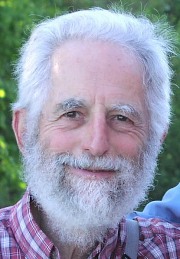
Ashleigh Ellwood Brilliant (born December 9, 1933 in London, England) is an author and syndicated cartoonist living in Santa Barbara, California. He is best known for Pot-Shots, a single-panel comic of illustrated one-liners, which began syndication in the United States in 1975.
More Ashley Brilliant Quotes here
“A closed mouth gathers no foot.”
Anonymous
“Until one is committed, there is hesitancy, the chance to draw back, always ineffectiveness. Concerning all acts of initiative (and creation) there is one elementary truth, the ignorance of which kills countless ideas and splendid plans: that the moment one definitely commits oneself, then Providence moves too. All sorts of things occur to help one that would never otherwise have occurred. A whole stream of events issues from the decision, raising in one’s favor all manner of unforeseen incidents and meetings and material assistance, which no man could have dreamed would have come his way. I have learned a deep respect for one of Goethe’s couplets:
“Whatever you can do, or dream you can, begin it. Boldness has genius, power, and magic in it.”
“
Author: William Hutchinson Murray (18 March 1913 – 19 March 1996), from the The Scottish Himalayan Expedition (1951)
“Sometimes it’s very difficult to keep momentum when it’s you that you are following.”
Eva María Duarte de Perón (also known as Evita) (May 7, 1919, July 26, 1952)

Eva Perón was the second wife of Argentine President Juan Domingo Perón (18951974) and the First Lady of Argentina from 1946 until her death in 1952. Though she was never an officially elected political figure, most scholars agree that by her husband’s second term in office she had come to exercise more power and influence within the government than anyone but her own husband.
“Reports that say that something hasn’t happened are always interesting to me, because as we know, there are known knowns; there are things we know we know. We also know there are known unknowns; that is to say we know there are some things we do not know. But there are also unknown unknowns – the ones we don’t know we don’t know.”
Donald Rumsfeld (American Secretary of Defense)
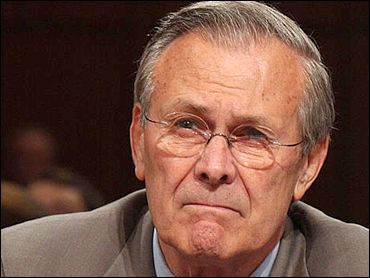
“The greatest and noblest pleasure which men can have in the world is to discover new truths; and the next is to shake off old prejudices.”
Author: Frederick the Great
Never argue with a fool, people might not know the difference.
Whatever hits the fan will not be evenly distributed.
Heisenberg indetermination principle applied to ill luck:
The better you know the amount of ill luck that will strike you, the worse you know when this will happen, and vice-versa.
Relativistic correction of Murphy’s law:
Whether things can go wrong or not, it depends on your frame of reference.
Corollary (otherwise said: ill luck is actually absolute):
Regardless of your frame of reference, things will go wrong anyway.
Murphy’s Law of Thermodynamics
Things get worse under pressure.
The Murphy Philosophy
Smile . . . tomorrow will be worse.
Quantization Revision of Murphy’s Laws
Everything goes wrong all at once.
Murphy’s Constant
Matter will be damaged in direct proportion to its value
Murphy’s Law of Research
Enough research will tend to support whatever theory.
Addition to Murphy’s Laws
In nature, nothing is ever right. Therefore, if everything is going right … something is wrong.
It is impossible to make anything foolproof because fools are so ingenious.
Left to themselves, things tend to go from bad to worse.
Rule of Accuracy: When working toward the solution of a problem, it always helps if you know the answer.
Corollary: Provided, of course, that you know there is a problem.
Nothing is as easy as it looks.
Everything takes longer than you think.
Everything takes longer than it takes.
If anything simply cannot go wrong, it will anyway.
Whenever you set out to do something, something else must be done first.
Every solution breeds new problems.
If it jams – force it. If it breaks, it needed replacing anyway.
When a broken appliance is demonstrated for the repairman, it will work perfectly.
In any hierarchy, each individual rises to his own level of incompetence, and then remains there.
When in doubt, mumble. When in trouble, delegate.
Anything good in life is either illegal, immoral or fattening.
Murphy’s golden rule: whoever has the gold makes the rules.
A Smith & Wesson beats four aces.
In case of doubt, make it sound convincing.
“If you want someone to be for you, never let him feel that he is dependant on you. Make him feel that you are in some way dependant on him.”
General George C. Marshall Quote
“If we don’t succeed, we run the risk of failure.”
George W. Bush Quote
The list of new words to appear in the 2006 Oxford English Dictionary;
TESTICULATING – Waving your arms around and talking bollocks.
BLAMESTORMING – Sitting around in a group, discussing why a deadline was missed or a project failed, and who was responsible.
SEAGULL MANAGER – A manager who flies in, makes a lot of noise, craps on everything, and then leaves.
ASSMOSIS – The process by which people seem to absorb success and advancement by sucking up to the boss rather than working hard.
SALMON DAY – The experience of spending an entire day swimming upstream only to get screwed and die.
CUBE FARM – An office filled with cubicles.
PRAIRIE DOGGING – When someone yells or drops something loudly in a cube farm, and people’s heads pop up over the walls to see that’s going
on.
(This also applies to applause from a promotion because there may be
cake.)
MOUSE POTATO – The on-line, wired generation’s answer to the couch potato.
SITCOMs – Single Income, Two Children, Oppressive Mortgage. What yuppies turn into when they have children and one of them stops working to stay home with the kids or start a “home business”.
STRESS PUPPY – A person who seems to thrive on being stressed out and whiny.
PERCUSSIVE MAINTENANCE – The fine art of whacking the cr*p out of an electronic device to get it to work again.
ADMINISPHERE – The rarefied organizational layers beginning just above the rank and file. Decisions that fall from the “adminisphere” are often
profoundly inappropriate or irrelevant to the problems they were designed to solve. This is often affiliated with the dreaded”administrivia” needless paperwork and processes.
OHNOSECOND – That minuscule fraction of time in which you realise that you’ve just made a BIG mistake (e.g. you’ve hit ‘reply all’)
AEROPLANE BLONDE – One who has bleached/dyed her hair but still has a ‘black box’.
AUSSIE KISS – Similar to a French Kiss, but given down under.
BEER COAT – The invisible but warm coat worn when walking home after a booze cruise at 3 in the morning.
BEER COMPASS – The invisible device that ensures your safe arrival home after booze cruise, even though you’re too drunk to remember where you live, how you got here, and where you’ve come from.
BOBFOC – Body Off Baywatch, Face Off Crimewatch.
BREAKING THE SEAL – Your first pee in the pub, usually after 2 hours of drinking. After breaking the seal of your bladder, repeat visits to the toilet will be required every 10 or 15 minutes for the rest of the night.
JOHNNY-NO-STARS – A young man of substandard intelligence, the typical adolescent who works in a burger restaurant. The ‘no-stars’ comes from the badges displaying stars that staff at fast-food restaurants often wear to show their level of training.
MILLENNIUM DOMES – The contents of a Wonderbra, i.e. extremely impressive when viewed from the outside, but there’s actually nought in there worth seeing.
MONKEY BATH – A bath so hot, that when lowering yourself in, you go: “Oo! Oo! Ho! Aa! Aa! Aa!”.
MYSTERY BUS – The bus that arrives at the pub on Friday night while you’re in the toilet after your 10th pint, and whisks away all the unattractive people so the pub is suddenly packed with stunners when you come back in.
MYSTERY TAXI – The taxi that arrives at your place on Saturday morning before you wake up, whisks away the stunner you slept with, and leaves a 10-Pinter in your bed instead.
SALAD DODGER – An excellent phrase for an overweight person.
Self-Image
“This is the true joy in life: the being used for a purpose recognized by yourself as a mighty one; the being a force of nature instead of a feverish, selfish little clod of ailments and grievances complaining that the world will not devote itself to making you happy.
I am of the opinion that my life belongs to the whole community, and as long as I live, it is my privilege to do for it whatever I can. I want to be thoroughly used up when I die, for the harder I work the more I live.
I rejoice in life for its own sake. Life is no ‘brief candle’ to me. It is a sort of splendid torch which I have got hold of for the moment, and I want to make it burn as brightly as possible before handing it on to future generations.”
George Bernard Shaw
Irish dramatist, critic, and social reformer George Bernard Shaw used his plays and essays as vehicles for his theories and causes, some of which were very political and economic socialism, a new religion of creative evolution, antivivisection, vegetarianism, and spelling reform.
“You cant get fresh water from a well that’s nearly dry.”
Author Unknown.
“To discard the hard-won information on how to live accumulated by our ancestors, or to expect to discover a viable set of goals all by oneself, is misguided hubris.”
Mihaly Csikszentmihalyi
“There is a tide in the affairs of men, which taken at the flood, leads on to fortune.”
Shakespeare.
“My opinions may have changed, but not the fact that I am right.”
Ashleigh Brilliant: Brilliant Thoughts
“I either want less corruption, or more chance to participate in it.”
Ashleigh Brilliant: Brilliant Thoughts
“Management is doing things right,
Leadership is doing the right things.”
Warren Bennis & Peter Drucker.
“Management is efficiency in climbing the ladder of success,
Leadership determines if the ladder is leaning against the right wall.”
See the important difference;
Imagine a group of producers cutting their way through the jungle with machetes.
They’re the producers, the problem solvers. They’re cutting through the undergrowth clearing it out.
The managers are behind them, sharpening their machetes, writing policy and procedure manuals,
holding muscle development programs, bringing in improved technologies
and setting up working schedules and compensation plans for machete wielders.
The leader is the one who climbs up the tallest tree, surveys the entire situation, and yells “Wrong Jungle!”
But how do the busy efficient producers and managers often respond? “Shut up! We’re making progress.”
Effectiveness, often even survival, does not depend solely on how much effort we expend,
but whether or not the effort we expend is in the right jungle.
– except & paraphrased from Stephen Covey’s book The 7 Habits of Highly Effective People
“Ooo, arr, eee arrr, Harvest y’ur crops while thee sun is shining!” 😉
A wise old Irish Philosopher, 2003
“Accept responsibility for yourself and your actions, thoughts and words. You alone make choices. You alone are answerable to the consequences of your behaviour. The feeble excuse that your boss required it, the establishment expected it, holds no truth or justification.”
David Icke (1952 -) English writer, public speaker, natural Law researcher, and former professional footballer

“It’s not the size of the dog in the fight, it’s the size of the fight in the dog.”
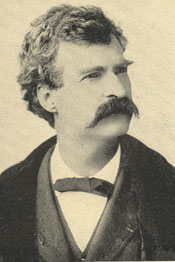
Mark Twain (1835 – 1910) Pseudo-name of Samuel Langhorne Clemens – US humorist, novelist, short story author, and wit; wrote novels “Tom Sawyer” 1876, “Huckleberry Finn” 1884, “A Connecticut Yankee in King Arthur’s Court” 1889
“Keep your mind ever on the Stars, but let your eyes watch over your footsteps, lest you fall into the mire by reason of your upward gaze.”
The Kybalion: Hermetic Philosophy is a 1908 book claiming to be the essence of the teachings of Hermes Trismegistus, published anonymously by a group or person under the pseudonym of “the Three Initiates”
“Whenever you find yourself on the side of the majority, it’s time to pause and reflect.”
Mark Twain (1835 – 1910) Pseudo-name of Samuel Langhorne Clemens – US humorist, novelist, short story author, and wit; wrote novels “Tom Sawyer” 1876, “Huckleberry Finn” 1884, “A Connecticut Yankee in King Arthur’s Court” 1889

“Orthodoxy means not thinking — not needing to think. Orthodoxy is unconsciousness.”
George Orwell, 1984
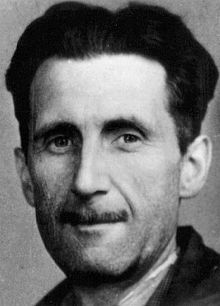
“Do not seek the truth, only cease to cherish your opinions.”
Zen Proverb

Zen is a school of Buddhism originating in China during the 6th century. Zen emphasizes the attainment of enlightenment and the personal expression of direct insight in the Buddhist teachings. Zen de-emphasizes mere knowledge of doctrine and favors direct understanding through zazen and interaction with an accomplished teacher.
“Ultimately, man should not ask what the meaning of his life is, but rather must recognize that it is he who is asked. In a word, each man is questioned by life; and he can only answer to life by answering for his own life; to life he can only respond by being responsible.”
Viktor Frankl, M.D., Ph.D., (1905 – 1997) Austrian neurologist and psychiatrist.

Viktor Frankl is the author of Man’s Search for Meaning, which chronicles his experiences as a concentration camp inmate at Auschwitz in WW2 and describes his psychotherapeutic method of finding meaning in all forms of existence, even the most sordid ones, and thus a reason to continue living.
Viktor Frankl is one of the key figures in existential therapy.
“Though an inheritance of acres may be bequeathed, an inheritance of knowledge and wisdom cannot. The wealthy man may pay others for doing his work for him, but it is impossible to get his thinking done for him by another, or to purchase any kind of self-culture.”
Samuel Smiles (1812 – 1904) Scottish author and reformer.
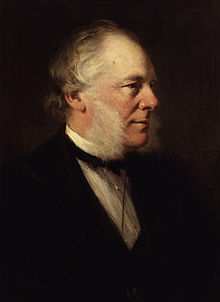
“Advances are Made by Answering Questions. Discoveries are Made by Questioning Answers.”
Bernard Haisch – German-born American astrophysicist, and author of The God Theory, offering “a genuine insight into how you can, and should, be a rational, science-believing human being and at the same time know that you are also an immortal spiritual being, a spark of God.” Haisch has advocated the serious scientific study of phenomena outside the traditional scope of science and is known for his interest in the UFO phenomenon as well as a variety of other unorthodox topics.

“You are lucky to have hornets, because if you have hornets then you will not be troubled by wasps.”
Old English’ Farmer Wisdom

“Nothing will ever be attempted if all possible objections must first be overcome.”
Samuel Johnson (1709-1784) often referred to as Dr Johnson, was an English author who made lasting contributions to English literature as a poet, essayist, moralist, literary critic, biographer, editor and lexicographer.

“As a blazing fire turns firewood into ashes, so does the fire of knowledge burn to ashes all reactions to material activities.”
The Bhagavad Gita is a 700-verse Hindu scripture that is part of the ancient Hindu epic, the Mahabharata, but is frequently treated as a freestanding text. It is considered among the most important texts in the history of literature and philosophy.
“Forgiveness is the fragrance that the violet sheds on the heel that has crushed it.”
Author: Mark Twain (1835 – 1910) Pseudo-name of Samuel Langhorne Clemens – US humorist, novelist, short story author, and wit; wrote novels “Tom Sawyer” 1876, “Huckleberry Finn” 1884, “A Connecticut Yankee in King Arthur’s Court” 1889

“Sweet are the uses of adversity,
Which like the toad, ugly and venomous,
Wears yet a precious jewel in his head.”
William Shakespeare (1564 – 1616) English poet and playwright, widely regarded as the greatest writer in the English language and the world’s pre-eminent dramatist.
“Stand together, yet not too near together;
For the pillars of the temple stand apart,
And the oak tree and the cypress grow not in each other’s shadow.”
Khalil Gibran (1883 – 1931) was a Lebanese American artist, poet, and writer. Author of The Prophet, a book of 26 poetic essays written in English in 1923.

Khalil Gibran was Born in the town of Bsharri in modern-day Lebanon, as a young man he emigrated with his family to the United States where he studied art and began his literary career.
“Being an executive does not require very developed frontal lobes, but rather a combination of charisma, a capacity to sustain boredom, and the ability to shallowly perform on harrying schedules.”
Nassim Nicholas Taleb (1960 – )

A specialist in financial derivatives, he held a “day job” in a lengthy senior trading and financial mathematics career in a number of New York City’s Wall Street firms, before starting a second career as a scholar in the epistemology of chance events to focus on his project of mapping how to live and act in a world we do not understand, and how to come to grips with randomness and the unknown – which includes his black swan theory of unexpected rare events.
“Better keep yourself clean and bright; you are the window through which you must see the world.”
George Bernard Shaw
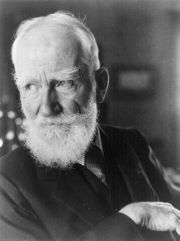
Irish dramatist, literary critic, and socialist. During his career Shaw wrote more than sixty plays. He was uniquely honoured by being awarded both a Nobel Prize (1925) for his contribution to literature and an Oscar (1938) for Pygmalion. He was a strong advocate for socialism and women’s rights, a vegetarian and teetotaller, and a harsh critic of formal education.
“It is better to live your own destiny imperfectly than to live an imitation of somebody else’s life with perfection”
The Bhagavad Gita (5th – 2nd Century BC)
The Bhagavad Gita is revered as a sacred scripture of Hinduism, and considered as one of the most important religious classics of the world. The teacher of the Bhagavad Gita is Krishna, who is regarded by the Hindus as the supreme manifestation of the Lord Himself, and is referred to within as Bhagavan—the divine one. The Bhagavad Gita is commonly referred to as The Gita for short.
“Saying that you don’t have time to improve your thoughts and your life is like saying that you don’t have time to stop for gas because you are too busy driving. Eventually it will catch up with you.”
Robin Sharma (1965 – )
“Don’t compromise yourself; you are all you’ve got.”
Janis Joplin (1943 – 1970) was an American singer, songwriter, and music arranger. She rose to prominence in the late 1960s as the lead singer of Big Brother and the Holding Company, and later as a solo artist. In 2004, Rolling Stone magazine ranked Joplin number 46 on its list of the 100 Greatest Artists of All Time.

“I have many unrecognised talents, but my faults have somehow succeeded in securing wide recognition.”
Ashleigh Brilliant (Ashley Brilliant)
“Hope is not blind optimism. It’s not ignoring the enormity of the tasks ahead or the roadblocks that stand in our path.
It’s not sitting on the sidelines or shirking from a fight. Hope is that thing inside us that insists, despite all the evidence to the contrary, that something better awaits us if we have the courage to reach for it and to work for it and to fight for it.“
Barack Hussein Obama II (1961 -) President-elect of the United States, and the first African American to be elected President of the United States

“It may be hard for an egg to turn into a bird: it would be a jolly sight harder for it to learn to fly while remaining an egg. We are like eggs at present. And you cannot go on indefinitely being just an ordinary, decent egg. We must be hatched or go bad.”
C. S. Lewis
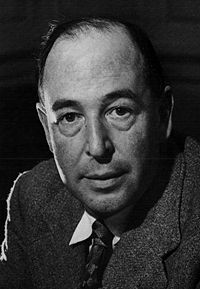
Clive Staples Lewis (1898 – 1963) was an Irish writer and scholar. Lewis’s works are diverse and include medieval literature, literary criticism, radio broadcasts, and fiction relating to the fight between good and evil. Author of The Chronicles of Narnia and The Space Trilogy.
“To know that you do not know is best.”
Author: Lao Tzu (4th or 6th century BC) Philosopher of ancient China and central figure in Taoism.

“As we know, There are known knowns. There are things we know we know. We also know. There are known unknowns. That is to say we know there are some things We do not know. But there are also unknown unknowns, the ones we don’t know we don’t know.”
-Feb. 12, 2002, Department of Defense news briefing
Donald Rumsfeld (born July 9, 1932) is a United States businessman, politician, the 13th Secretary of Defense under President Gerald Ford from 1975 to 1977, and the 21st Secretary of Defense under President George W. Bush from 2001 to 2006. He is both the youngest (43 years old) and the oldest (68 years old) person to have held the position, as well as the only person to have held the position for two non-consecutive terms, and the second longest serving. Rumsfeld is also one of the most controversial defense secretaries in US history.
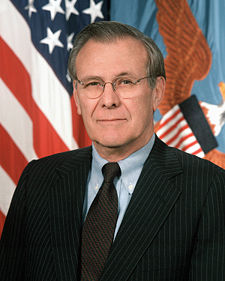
“Time and money spent in helping men to do more for themselves is far better than mere giving.”
Attributed to Henry Ford (1863 – 1947)
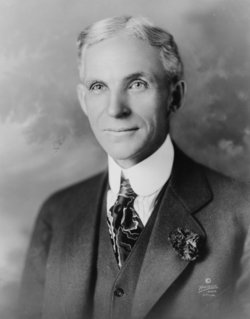
Henry Ford was the founder of the Ford Motor Company and father of modern assembly lines used in mass production. His introduction of the Model T automobile revolutionized transportation and American industry. He was a prolific inventor and was awarded 161 U.S. patents. He is credited with “Fordism”, that is, the mass production of large numbers of inexpensive automobiles using the assembly line which would finish a car in 98 minutes, coupled with high wages for his workers—notably the $5.00 a day pay scale adopted in 1914. Ford, though poorly educated, had a global vision, with consumerism as the key to peace. His intense commitment to lowering costs resulted in many technical and business innovations, including a franchise system that put a dealership in every city in North America, and in major cities on six continents.
“Some men are born with greatness, some men achieve greatness, and some men have greatness thrust upon them.”

William Shakespeare (1564-1616) English poet and playwright, widely regarded as the greatest writer in the English language and the world’s pre-eminent dramatist. He is often called England’s national poet. His surviving works consist of 38 plays, 154 sonnets, two long narrative poems, and several other poems. His plays have been translated into every major living language, and are performed more often than those of any other playwright.
“You are neither right nor wrong because others agree with you. You are right because your facts are right.”
Warren Buffett (1930 – ) American investor, businessman and philanthropist.
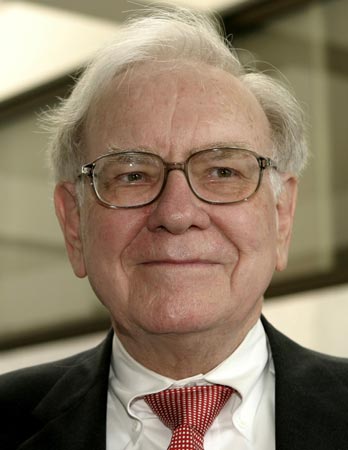
He is regarded as one of the world’s greatest stock market investors, and is the largest shareholder and CEO of Berkshire Hathaway. With an estimated net worth of around US$62 billion, he was ranked by Forbes as the richest person in the world as of March 5, 2008.
Buffett is noted for his adherence to the value investing philosophy and for his personal frugality despite his immense wealth. His 2006 annual salary is about $100,000, which is on the low side of senior executive remuneration in other comparable companies, and when he spent $9.7 million of Berkshire’s funds on a business jet in 1989, he jokingly named it “The Indefensible” because of his past criticisms of such purchases by other CEOs. He lives in the same house in the central Dundee neighborhood of Omaha that he bought in 1958 for $31,500, today valued at around $700,000.
“Man cannot discover new oceans unless he has the courage to lose sight of the shore.”
Andre Gide (1869 – 1951) – French author and winner of the Nobel Prize in literature in 1947. Gide’s career ranged from its beginnings in the symbolist movement, to the advent of anticolonialism between the two World Wars.
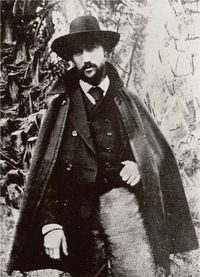
“I long to accomplish great and noble tasks, but it is my chief duty to accomplish humble tasks as though they were great and noble. The world is moved along, not only by the mighty shoves of its heroes, but also by the aggregate of the tiny pushes of each honest worker.”
Helen Keller (1880 – 1968) American author, activist and lecturer. She was the first deafblind person to graduate from college.
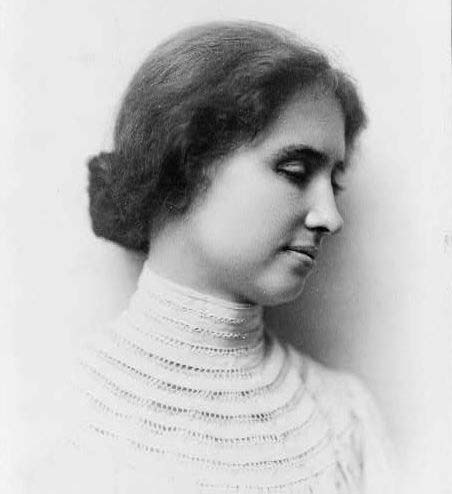
“It is difficult to get a man to understand something when his salary depends upon his not understanding it.”
Original Author: Upton Sinclair
More recently used by Al Gore (born 1948) in the documentary movie “An Inconvenient Truth” 2006.
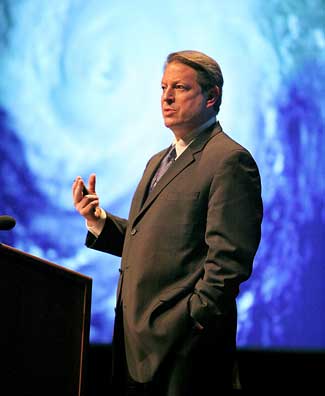
Al Gore was forty-fifth vice president of the United States, serving from 1993 to 2001 under President Bill Clinton. Gore was awarded the 2007 Nobel Peace Prize, which was shared by the Intergovernmental Panel on Climate Change, headed by Rajendra K. Pachauri (Delhi, India). The award was given “for their efforts to build up and disseminate greater knowledge about man-made climate change, and to lay the foundations for the measures that are needed to counteract such change” on October 12, 2007.
An Inconvenient Truth documents the evidence for anthropogenic global warming and warns of the consequences of people not making immediate changes to their behavior. In late July, it surpassed Bowling for Columbine as the third-highest-grossing documentary in U.S. history

“A baby is God’s opinion that the world should go on.”
Author: Carl August Sandburg (1878 – 1967) American poet, historian, novelist, journalist, biographer, and autobiographer. During the course of his career, Sandburg won two Pulitzer Prizes, one for his biography of Abraham Lincoln (Abraham Lincoln: The War Years) and one for his collection The Complete Poems of Carl Sandburg.
Mahatma Gandhi (1869 – 1948) A British educated lawyer, major political and spiritual leader. Gandhi practiced and advocated non-violence and truth, even in the most extreme situations.
Gandhi was the pioneer of the resistance of tyranny through mass civil disobedience, firmly founded upon total non-violence – which led India to independence and inspired movements for civil rights and freedom across the world.
On January 30, 1948, Gandhi was shot and killed by a Hindu radical.
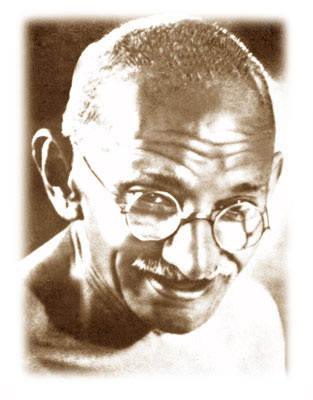
“Always aim at complete harmony of thought and word and deed. Always aim at purifying your thoughts and everything will be well.”
Mahatma Gandhi Quote (Ghandi Quote)
“As long as you derive inner help and comfort from anything, keep it.”
Mahatma Gandhi Quote (Ghandi Quote)
“Freedom is not worth having if it does not include the freedom to make mistakes.”
Mahatma Gandhi
“Happiness is when what you think, what you say, and what you do are in harmony.”
Mahatma Gandhi
“Hate the sin, love the sinner.”
Mahatma Gandhi Quote (Ghandi Quote)
“Honest differences are often a healthy sign of progress.”
Mahatma Gandhi Quote (Ghandi Quote)
“Honest disagreement is often a good sign of progress.”
Mahatma Gandhi Quote (Ghandi Quote)
“I believe in equality for everyone, except reporters and photographers.”
Mahatma Gandhi Quote (Ghandi Quote)
“I cannot teach you violence, as I do not myself believe in it. I can only teach you not to bow your heads before any one even at the cost of your life.”
Mahatma Gandhi Quote (Ghandi Quote)
“I object to violence because when it appears to do good, the good is only temporary; the evil it does is permanent.”
Mahatma Gandhi Quote (Ghandi Quote)
“I want freedom for the full expression of my personality.”
Mahatma Gandhi Quote (Ghandi Quote)
“In the attitude of silence the soul finds the path in a clearer light, and what is elusive and deceptive resolves itself into crystal clearness. Our life is a long and arduous quest after Truth.”
Mahatma Gandhi
“Indolence is a delightful but distressing state; we must be doing something to be happy.”
Mahatma Gandhi
“It is better to be violent, if there is violence in our hearts, than to put on the cloak of nonviolence to cover impotence.”
Mahatma Gandhi
“It is unwise to be too sure of one’s own wisdom. It is healthy to be reminded that the strongest might weaken and the wisest might err.”Mahatma Gandhi
“One needs to be slow to form convictions, but once formed they must be defended against the heaviest odds.”
Mahatma Gandhi Quote (Ghandi Quote)
“Strength does not come from physical capacity. It comes from an indomitable will.”
Mahatma Gandhi Quote (Ghandi Quote)
“The weak can never forgive. Forgiveness is the attribute of the strong.”
Mahatma Gandhi
“Whatever you do will be insignificant, but it is very important that you do it.”
Mahatma Gandhi Quote (Ghandi Quote)
“When I despair, I remember that all through history the ways of truth and love have always won. There have been tyrants, and murderers, and for a time they can seem invincible, but in the end they always fall. Think of it–always.”
Mahatma Gandhi Quote (Ghandi Quote)
“You must be the change you want to see in the world.”
Mahatma Gandhi Quote (Ghandi Quote)
“You must not lose faith in humanity. Humanity is an ocean; if a few drops of the ocean are dirty, the ocean does not become dirty.”
Mahatma Gandhi
“What difference does it make to the dead, the orphans and the homeless, whether the mad destruction is wrought under the name of totalitarianism or the holy name of liberty or democracy?”
Mahatma Gandhi, “Non-Violence in Peace and War”
“Victory attained by violence is tantamount to a defeat, for it is momentary.”
Mahatma Gandhi, ‘Satyagraha Leaflet No. 13,’ May 3, 1919
“An eye for an eye makes the whole world blind.”
Mahatma Gandhi, (attributed)
“Freedom is not worth having if it does not connote freedom to err. It passes my comprehension how human beings, be they ever so experienced and able, can delight in depriving other human beings of that precious right.”
Mahatma Gandhi, 1931
“I think it would be a good idea.”
Mahatma Gandhi, when asked what he thought of Western civilization
“It is preoccupation with possession, more than anything else, that prevents men from living freely and nobly.”
Bertrand Russell (1872 – 1970). British philosopher, historian, logician, mathematician, advocate for social reform, pacifist, and prominent rationalist.
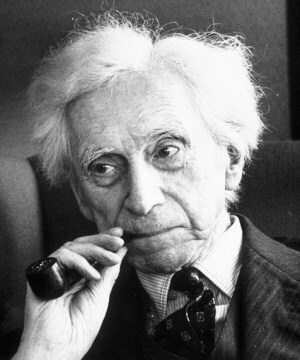
“Spoon feeding in the long-run teaches us nothing but the shape of the spoon.”
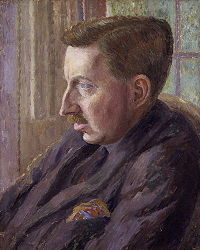
Edward Morgan Forster (1879 – 1970) was an English novelist, short story writer, and essayist.
He is known best for his ironic and well-plotted novels examining class difference and hypocrisy in early 20th-century British society.
“The era of procrastination, of half-measures, of soothing and baffling expedients, of delays, is coming to a close. In its place, we are entering a period of consequences.”
Sir Winston Churchill (30 November 1874 – 24 January 1965) was a British politician who served as Prime Minister of the United Kingdom from 1940 to 1945 and again from 1951 to 1955. A noted statesman, orator and strategist, Churchill was also an officer in the British Army. He has been studied to a unique extent as part of modern British and world history. A prolific author, he won the Nobel Prize in Literature in 1953 for his own historical writings.
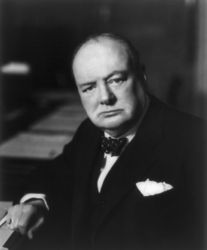
“People are always blaming circumstances for what they are. I do not believe in circumstances. The people who get on in this world are the people who get up and look for the circumstances they want, and if they cannot find them, they make them.”
George Bernard Shaw

Irish dramatist, literary critic, and socialist. During his career Shaw wrote more than sixty plays. He was uniquely honoured by being awarded both a Nobel Prize (1925) for his contribution to literature and an Oscar (1938) for Pygmalion. He was a strong advocate for socialism and women’s rights, a vegetarian and teetotaller, and a harsh critic of formal education.
“Give a man a fish, and he will eat for today. Teach a man to fish, and he will eat for a lifetime. Teach a man to learn, and he will not always have to eat fish.”
Author Unknown.
“Chance favours the prepared mind”
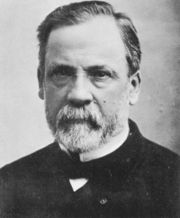
Louis Pasteur (1822 – 1895) was a French chemist best known for his remarkable breakthroughs in microbiology. His experiments confirmed the germ theory of disease, also reducing mortality from puerperal fever (childbed), and he created the first vaccine for rabies. He is best known to the general public for showing how to stop milk and wine from going sour – this process came to be called pasteurization.
“What an odd thing tourism is. You fly off to a strange land, eagerly abandoning all the comforts of home, and then expend vast quantities of time and money in a largely futile attempt to recapture the comforts that you wouldn’t have lost if you hadn’t left home in the first place.”
Bill Bryson, OBE (1951 – ) is a best-selling American-born author of humorous books on travel, as well as books on the English language and on scientific subjects (A Short History of Nearly Everything). He has lived for most of his adult life in England.
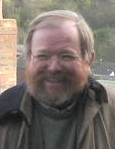
“I know God will not give me anything I can’t handle. I just wish that He didn’t trust me so much.”
Mother Teresa, (1910 – 1997), was an Albanian Roman Catholic nun who founded the Missionaries of Charity and won the Nobel Peace Prize in 1979 for her humanitarian work.

For over forty years, she ministered to the needs of the poor, sick, orphaned, and dying of Calcutta (Kolkata). As her religious order grew she expanded her ministry to other countries. By the 1970s she had become internationally famed as a humanitarian and advocate for the poor and helpless, due in part to a documentary, and book Something Beautiful for God by Malcolm Muggeridge
“No fear, no surprise, no hesitation, no doubt.”
Miyamoto Musashi (1584 – 1645) also known as Shinmen Takezo, Miyamoto Bennosuke, or by his Buddhist name Niten Doraku, was a famous Japanese samurai.

Miyamoto Musashi is considered by many to have been one of the most skilled swordsmen in history. Musashi, as he is often simply known, became legendary through his outstanding swordsmanship in numerous duels, even from a very young age. He is the founder of the Hyoho Niten Ichi-ryu or Niten-ryu style of swordsmanship and wrote The Book of Five Rings, a book on strategy, tactics, and philosophy that is still studied today.
“Wealth, like happiness, is never attained when sought after directly. It comes as a by-product of providing a useful service.”
Attributed to Henry Ford (1863 – 1947)

Henry Ford was the founder of the Ford Motor Company and father of modern assembly lines used in mass production. His introduction of the Model T automobile revolutionized transportation and American industry. He was a prolific inventor and was awarded 161 U.S. patents. He is credited with “Fordism”, that is, the mass production of large numbers of inexpensive automobiles using the assembly line which would finish a car in 98 minutes, coupled with high wages for his workers notably the $5.00 a day pay scale adopted in 1914. Ford, though poorly educated, had a global vision, with consumerism as the key to peace. His intense commitment to lowering costs resulted in many technical and business innovations, including a franchise system that put a dealership in every city in North America, and in major cities on six continents.
“I am the master of my fate; I am the captain of my soul.”
William Ernest Henley (1849 – 1903). An English poet, critic and editor.
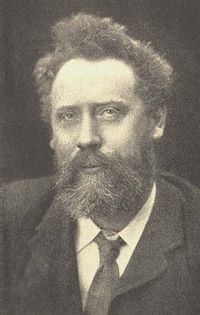
“To be without some of the things you want is an indispensable part of happiness.”
Bertrand Russell (1872 – 1970) British philosopher, logician, mathematician and advocate for social reform.
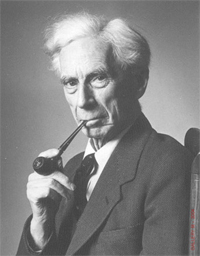
The Republic
By Plato
Written 360 B.C.E
Translation by Benjamin Jowett
The Introduction
The Republic of Plato is the longest of his works with the exception of the Laws, and is certainly the greatest of them. There are nearer approaches to modern metaphysics in the Philebus and in the Sophist; the Politicus or Statesman is more ideal; the form and institutions of the State are more clearly drawn out in the Laws; as works of art, the Symposium and the Protagoras are of higher excellence. But no other Dialogue of Plato has the same largeness of view and the same perfection of style; no other shows an equal knowledge of the world, or contains more of those thoughts which are new as well as old, and not of one age only but of all. Nowhere in Plato is there a deeper irony or a greater wealth of humor or imagery, or more dramatic power. Nor in any other of his writings is the attempt made to interweave life and speculation, or to connect politics with philosophy. The Republic is the centre around which the other Dialogues may be grouped; here philosophy reaches the highest point to which ancient thinkers ever attained. Plato among the Greeks, like Bacon among the moderns, was the first who conceived a method of knowledge, although neither of them always distinguished the bare outline or form from the substance of truth; and both of them had to be content with an abstraction of science which was not yet realized. He was the greatest metaphysical genius whom the world has seen; and in him, more than in any other ancient thinker, the germs of future knowledge are contained. The sciences of logic and psychology, which have supplied so many instruments of thought to after-ages, are based upon the analyses of Socrates and Plato. The principles of definition, the law of contradiction, the fallacy of arguing in a circle, the distinction between the essence and accidents of a thing or notion, between means and ends, between causes and conditions; also the division of the mind into the rational, concupiscent, and irascible elements, or of pleasures and desires into necessary and unnecessary –these and other great forms of thought are all of them to be found in the Republic, and were probably first invented by Plato. The greatest of all logical truths, and the one of which writers on philosophy are most apt to lose sight, the difference between words and things, has been most strenuously insisted on by him, although he has not always avoided the confusion of them in his own writings. But he does not bind up truth in logical formulae, –logic is still veiled in metaphysics; and the science which he imagines to “contemplate all truth and all existence” is very unlike the doctrine of the syllogism which Aristotle claims to have discovered.
Neither must we forget that the Republic is but the third part of a still larger design which was to have included an ideal history of Athens, as well as a political and physical philosophy. The fragment of the Critias has given birth to a world-famous fiction, second only in importance to the tale of Troy and the legend of Arthur; and is said as a fact to have inspired some of the early navigators of the sixteenth century. This mythical tale, of which the subject was a history of the wars of the Athenians against the Island of Atlantis, is supposed to be founded upon an unfinished poem of Solon, to which it would have stood in the same relation as the writings of the logographers to the poems of Homer. It would have told of a struggle for Liberty, intended to represent the conflict of Persia and Hellas. We may judge from the noble commencement of the Timaeus, from the fragment of the Critias itself, and from the third book of the Laws, in what manner Plato would have treated this high argument. We can only guess why the great design was abandoned; perhaps because Plato became sensible of some incongruity in a fictitious history, or because he had lost his interest in it, or because advancing years forbade the completion of it; and we may please ourselves with the fancy that had this imaginary narrative ever been finished, we should have found Plato himself sympathizing with the struggle for Hellenic independence, singing a hymn of triumph over Marathon and Salamis, perhaps making the reflection of Herodotus where he contemplates the growth of the Athenian empire–“How brave a thing is freedom of speech, which has made the Athenians so far exceed every other state of Hellas in greatness!” or, more probably, attributing the victory to the ancient good order of Athens and to the favor of Apollo and Athene.
Again, Plato may be regarded as the “captain” (‘arhchegoz’) or leader of a goodly band of followers; for in the Republic is to be found the original of Cicero’s De Republica, of St. Augustine’s City of God, of the Utopia of Sir Thomas More, and of the numerous other imaginary States which are framed upon the same model. The extent to which Aristotle or the Aristotelian school were indebted to him in the Politics has been little recognized, and the recognition is the more necessary because it is not made by Aristotle himself. The two philosophers had more in common than they were conscious of; and probably some elements of Plato remain still undetected in Aristotle. In English philosophy too, many affinities may be traced, not only in the works of the Cambridge Platonists, but in great original writers like Berkeley or Coleridge, to Plato and his ideas. That there is a truth higher than experience, of which the mind bears witness to herself, is a conviction which in our own generation has been enthusiastically asserted, and is perhaps gaining ground. Of the Greek authors who at the Renaissance brought a new life into the world Plato has had the greatest influence. The Republic of Plato is also the first treatise upon education, of which the writings of Milton and Locke, Rousseau, Jean Paul, and Goethe are the legitimate descendants. Like Dante or Bunyan, he has a revelation of another life; like Bacon, he is profoundly impressed with the un unity of knowledge; in the early Church he exercised a real influence on theology, and at the Revival of Literature on politics. Even the fragments of his words when “repeated at second-hand” have in all ages ravished the hearts of men, who have seen reflected in them their own higher nature. He is the father of idealism in philosophy, in politics, in literature. And many of the latest conceptions of modern thinkers and statesmen, such as the unity of knowledge, the reign of law, and the equality of the sexes, have been anticipated in a dream by him.
Argument
The argument of the Republic is the search after Justice, the nature of which is first hinted at by Cephalus, the just and blameless old man –then discussed on the basis of proverbial morality by Socrates and Polemarchus –then caricatured by Thrasymachus and partially explained by Socrates –reduced to an abstraction by Glaucon and Adeimantus, and having become invisible in the individual reappears at length in the ideal State which is constructed by Socrates. The first care of the rulers is to be education, of which an outline is drawn after the old Hellenic model, providing only for an improved religion and morality, and more simplicity in music and gymnastic, a manlier strain of poetry, and greater harmony of the individual and the State. We are thus led on to the conception of a higher State, in which “no man calls anything his own,” and in which there is neither “marrying nor giving in marriage,” and “kings are philosophers” and “philosophers are kings;” and there is another and higher education, intellectual as well as moral and religious, of science as well as of art, and not of youth only but of the whole of life. Such a State is hardly to be realized in this world and would quickly degenerate. To the perfect ideal succeeds the government of the soldier and the lover of honor, this again declining into democracy, and democracy into tyranny, in an imaginary but regular order having not much resemblance to the actual facts. When “the wheel has come full circle” we do not begin again with a new period of human life; but we have passed from the best to the worst, and there we end. The subject is then changed and the old quarrel of poetry and philosophy which had been more lightly treated in the earlier books of the Republic is now resumed and fought out to a conclusion. Poetry is discovered to be an imitation thrice removed from the truth, and Homer, as well as the dramatic poets, having been condemned as an imitator, is sent into banishment along with them. And the idea of the State is supplemented by the revelation of a future life.
The division into books, like all similar divisions, is probably later than the age of Plato. The natural divisions are five in number; –(1) Book I and the first half of Book II down to the paragraph beginning, “I had always admired the genius of Glaucon and Adeimantus,” which is introductory; the first book containing a refutation of the popular and sophistical notions of justice, and concluding, like some of the earlier Dialogues, without arriving at any definite result. To this is appended a restatement of the nature of justice according to common opinion, and an answer is demanded to the question –What is justice, stripped of appearances? The second division (2) includes the remainder of the second and the whole of the third and fourth books, which are mainly occupied with the construction of the first State and the first education. The third division (3) consists of the fifth, sixth, and seventh books, in which philosophy rather than justice is the subject of inquiry, and the second State is constructed on principles of communism and ruled by philosophers, and the contemplation of the idea of good takes the place of the social and political virtues. In the eighth and ninth books (4) the perversions of States and of the individuals who correspond to them are reviewed in succession; and the nature of pleasure and the principle of tyranny are further analyzed in the individual man. The tenth book (5) is the conclusion of the whole, in which the relations of philosophy to poetry are finally determined, and the happiness of the citizens in this life, which has now been assured, is crowned by the vision of another.
Or a more general division into two parts may be adopted; the first (Books I – IV) containing the description of a State framed generally in accordance with Hellenic notions of religion and morality, while in the second (Books V – X) the Hellenic State is transformed into an ideal kingdom of philosophy, of which all other governments are the perversions. These two points of view are really opposed, and the opposition is only veiled by the genius of Plato. The Republic, like the Phaedrus, is an imperfect whole; the higher light of philosophy breaks through the regularity of the Hellenic temple, which at last fades away into the heavens. Whether this imperfection of structure arises from an enlargement of the plan; or from the imperfect reconcilement in the writer’s own mind of the struggling elements of thought which are now first brought together by him; or, perhaps, from the composition of the work at different times –are questions, like the similar question about the Iliad and the Odyssey, which are worth asking, but which cannot have a distinct answer. In the age of Plato there was no regular mode of publication, and an author would have the less scruple in altering or adding to a work which was known only to a few of his friends. There is no absurdity in supposing that he may have laid his labors aside for a time, or turned from one work to another; and such interruptions would be more likely to occur in the case of a long than of a short writing. In all attempts to determine the chronological he order of the Platonic writings on internal evidence, this uncertainty about any single Dialogue being composed at one time is a disturbing element, which must be admitted to affect longer works, such as the Republic and the Laws, more than shorter ones. But, on the other hand, the seeming discrepancies of the Republic may only arise out of the discordant elements which the philosopher has attempted to unite in a single whole, perhaps without being himself able to recognize the inconsistency which is obvious to us. For there is a judgment of after ages which few great writers have ever been able to anticipate for themselves. They do not perceive the want of connection in their own writings, or the gaps in their systems which are visible enough to those who come after them. In the beginnings of literature and philosophy, amid the first efforts of thought and language, more inconsistencies occur than now, when the paths of speculation are well worn and the meaning of words precisely defined. For consistency, too, is the growth of time; and some of the greatest creations of the human mind have been wanting in unity. Tried by this test, several of the Platonic Dialogues, according to our modern ideas, appear to be defective, but the deficiency is no proof that they were composed at different times or by different hands. And the supposition that the Republic was written uninterruptedly and by a continuous effort is in some degree confirmed by the numerous references from one part of the work to another.
The second title, “Concerning Justice,” is not the one by which the Republic is quoted, either by Aristotle or generally in antiquity, and, like the other second titles of the Platonic Dialogues, may therefore be assumed to be of later date. Morgenstern and others have asked whether the definition of justice, which is the professed aim, or the construction of the State is the principal argument of the work. The answer is, that the two blend in one, and are two faces of the same truth; for justice is the order of the State, and the State is the visible embodiment of justice under the conditions of human society. The one is the soul and the other is the body, and the Greek ideal of the State, as of the individual, is a fair mind in a fair body. In Hegelian phraseology the State is the reality of which justice is the ideal. Or, described in Christian language, the kingdom of God is within, and yet develops into a Church or external kingdom; “the house not made with hands, eternal in the heavens,” is reduced to the proportions of an earthly building. Or, to use a Platonic image, justice and the State are the warp and the woof which run through the whole texture. And when the constitution of the State is completed, the conception of justice is not dismissed, but reappears under the same or different names throughout the work, both as the inner law of the individual soul, and finally as the principle of rewards and punishments in another life. The virtues are based on justice, of which common honesty in buying and selling is the shadow, and justice is based on the idea of good, which is the harmony of the world, and is reflected both in the institutions of States and in motions of the heavenly bodies. The Timaeus, which takes up the political rather than the ethical side of the Republic, and is chiefly occupied with hypotheses concerning the outward world, yet contains many indications that the same law is supposed to reign over the State, over nature, and over man.
Too much, however, has been made of this question both in ancient and in modern times. There is a stage of criticism in which all works, whether of nature or of art, are referred to design. Now in ancient writings, and indeed in literature generally, there remains often a large element which was not comprehended in the original design. For the plan grows under the author’s hand; new thoughts occur to him in the act of writing; he has not worked out the argument to the end before he begins. The reader who seeks to find some one idea under which the whole may be conceived, must necessarily seize on the vaguest and most general. Thus Stallbaum, who is dissatisfied with the ordinary explanations of the argument of the Republic, imagines himself to have found the true argument “in the representation of human life in a State perfected by justice and governed according to the idea of good.” There may be some use in such general descriptions, but they can hardly be said to express the design of the writer. The truth is, that we may as well speak of many designs as of one; nor need anything be excluded from the plan of a great work to which the mind is naturally led by the association of ideas, and which does not interfere with the general purpose. What kind or degree of unity is to be sought after in a building, in the plastic arts, in poetry, in prose, is a problem which has to be determined relatively to the subject-matter. To Plato himself, the inquiry “what was the intention of the writer,” or “what was the principal argument of the Republic” would have been hardly intelligible, and therefore had better be at once dismissed.
Is not the Republic the vehicle of three or four great truths which, to Plato’s own mind, are most naturally represented in the form of the State? Just as in the Jewish prophets the reign of Messiah, or “the day of the Lord,” or the suffering Servant or people of God, or the “Sun of righteousness with healing in his wings” only convey, to us at least, their great spiritual ideals, so through the Greek State Plato reveals to us his own thoughts about divine perfection, which is the idea of good –like the sun in the visible world; –about human perfection, which is justice –about education beginning in youth and continuing in later years –about poets and sophists and tyrants who are the false teachers and evil rulers of mankind –about “the world” which is the embodiment of them –about a kingdom which exists nowhere upon earth but is laid up in heaven to be the pattern and rule of human life. No such inspired creation is at unity with itself, any more than the clouds of heaven when the sun pierces through them. Every shade of light and dark, of truth, and of fiction which is the veil of truth, is allowable in a work of philosophical imagination. It is not all on the same plane; it easily passes from ideas to myths and fancies, from facts to figures of speech. It is not prose but poetry, at least a great part of it, and ought not to be judged by the rules of logic or the probabilities of history. The writer is not fashioning his ideas into an artistic whole; they take possession of him and are too much for him. We have no need therefore to discuss whether a State such as Plato has conceived is practicable or not, or whether the outward form or the inward life came first into the mind of the writer. For the practicability of his ideas has nothing to do with their truth; and the highest thoughts to which he attains may be truly said to bear the greatest “marks of design” –justice more than the external frame-work of the State, the idea of good more than justice. The great science of dialectic or the organization of ideas has no real content; but is only a type of the method or spirit in which the higher knowledge is to be pursued by the spectator of all time and all existence. It is in the fifth, sixth, and seventh books that Plato reaches the “summit of speculation,” and these, although they fail to satisfy the requirements of a modern thinker, may therefore be regarded as the most important, as they are also the most original, portions of the work.
It is not necessary to discuss at length a minor question which has been raised by Boeckh, respecting the imaginary date at which the conversation was held (the year 411 B. C. which is proposed by him will do as well as any other); for a writer of fiction, and especially a writer who, like Plato, is notoriously careless of chronology, only aims at general probability. Whether all the persons mentioned in the Republic could ever have met at any one time is not a difficulty which would have occurred to an Athenian reading the work forty years later, or to Plato himself at the time of writing (any more than to Shakespeare respecting one of his own dramas); and need not greatly trouble us now. Yet this may be a question having no answer “which is still worth asking,” because the investigation shows that we can not argue historically from the dates in Plato; it would be useless therefore to waste time in inventing far-fetched reconcilements of them in order avoid chronological difficulties, such, for example, as the conjecture of C. F. Hermann, that Glaucon and Adeimantus are not the brothers but the uncles of Plato, or the fancy of Stallbaum that Plato intentionally left anachronisms indicating the dates at which some of his Dialogues were written.
Characters
The principal characters in the Republic are Cephalus, Polemarchus, Thrasymachus, Socrates, Glaucon, and Adeimantus. Cephalus appears in the introduction only, Polemarchus drops at the end of the first argument, and Thrasymachus is reduced to silence at the close of the first book. The main discussion is carried on by Socrates, Glaucon, and Adeimantus. Among the company are Lysias (the orator) and Euthydemus, the sons of Cephalus and brothers of Polemarchus, an unknown Charmantides –these are mute auditors; also there is Cleitophon, who once interrupts, where, as in the Dialogue which bears his name, he appears as the friend and ally of Thrasymachus.
Cephalus, the patriarch of house, has been appropriately engaged in offering a sacrifice. He is the pattern of an old man who has almost done with life, and is at peace with himself and with all mankind. He feels that he is drawing nearer to the world below, and seems to linger around the memory of the past. He is eager that Socrates should come to visit him, fond of the poetry of the last generation, happy in the consciousness of a well-spent life, glad at having escaped from the tyranny of youthful lusts. His love of conversation, his affection, his indifference to riches, even his garrulity, are interesting traits of character. He is not one of those who have nothing to say, because their whole mind has been absorbed in making money. Yet he acknowledges that riches have the advantage of placing men above the temptation to dishonesty or falsehood. The respectful attention shown to him by Socrates, whose love of conversation, no less than the mission imposed upon him by the Oracle, leads him to ask questions of all men, young and old alike, should also be noted. Who better suited to raise the question of justice than Cephalus, whose life might seem to be the expression of it? The moderation with which old age is pictured by Cephalus as a very tolerable portion of existence is characteristic, not only of him, but of Greek feeling generally, and contrasts with the exaggeration of Cicero in the De Senectute. The evening of life is described by Plato in the most expressive manner, yet with the fewest possible touches. As Cicero remarks (Ep. ad Attic. iv. 16), the aged Cephalus would have been out of place in the discussion which follows, and which he could neither have understood nor taken part in without a violation of dramatic propriety.
His “son and heir” Polemarchus has the frankness and impetuousness of youth; he is for detaining Socrates by force in the opening scene, and will not “let him off” on the subject of women and children. Like Cephalus, he is limited in his point of view, and represents the proverbial stage of morality which has rules of life rather than principles; and he quotes Simonides as his father had quoted Pindar. But after this he has no more to say; the answers which he makes are only elicited from him by the dialectic of Socrates. He has not yet experienced the influence of the Sophists like Glaucon and Adeimantus, nor is he sensible of the necessity of refuting them; he belongs to the pre-Socratic or pre-dialectical age. He is incapable of arguing, and is bewildered by Socrates to such a degree that he does not know what he is saying. He is made to admit that justice is a thief, and that the virtues follow the analogy of the arts. From his brother Lysias we learn that he fell a victim to the Thirty Tyrants, but no allusion is here made to his fate, nor to the circumstance that Cephalus and his family were of Syracusan origin, and had migrated from Thurii to Athens.
The “Chalcedonian giant,” Thrasymachus, of whom we have already heard in the Phaedrus, is the personification of the Sophists, according to Plato’s conception of them, in some of their worst characteristics. He is vain and blustering, refusing to discourse unless he is paid, fond of making an oration, and hoping thereby to escape the inevitable Socrates; but a mere child in argument, and unable to foresee that the next “move” (to use a Platonic expression) will “shut him up.” He has reached the stage of framing general notions, and in this respect is in advance of Cephalus and Polemarchus. But he is incapable of defending them in a discussion, and vainly tries to cover his confusion in banter and insolence. Whether such doctrines as are attributed to him by Plato were really held either by him or by any other Sophist is uncertain; in the infancy of philosophy serious errors about morality might easily grow up –they are certainly put into the mouths of speakers in Thucydides; but we are concerned at present with Plato’s description of him, and not with the historical reality. The inequality of the contest adds greatly to the humor of the scene. The pompous and empty Sophist is utterly helpless in the hands of the great master of dialectic, who knows how to touch all the springs of vanity and weakness in him. He is greatly irritated by the irony of Socrates, but his noisy and imbecile rage only lays him more and more open to the thrusts of his assailant. His determination to cram down their throats, or put “bodily into their souls” his own words, elicits a cry of horror from Socrates. The state of his temper is quite as worthy of remark as the process of the argument. Nothing is more amusing than his complete submission when he has been once thoroughly beaten. At first he seems to continue the discussion with reluctance, but soon with apparent good-will, and he even testifies his interest at a later stage by one or two occasional remarks. When attacked by Glaucon he is humorously protected by Socrates “as one who has never been his enemy and is now his friend.” From Cicero and Quintilian and from Aristotle’s Rhetoric we learn that the Sophist whom Plato has made so ridiculous was a man of note whose writings were preserved in later ages. The play on his name which was made by his contemporary Herodicus, “thou wast ever bold in battle,” seems to show that the description of him is not devoid of verisimilitude.
When Thrasymachus has been silenced, the two principal respondents, Glaucon and Adeimantus, appear on the scene: here, as in Greek tragedy, three actors are introduced. At first sight the two sons of Ariston may seem to wear a family likeness, like the two friends Simmias and Cebes in the Phaedo. But on a nearer examination of them the similarity vanishes, and they are seen to be distinct characters. Glaucon is the impetuous youth who can “just never have enough of fechting” (cf. the character of him in Xen. Mem. iii. 6); the man of pleasure who is acquainted with the mysteries of love; the “juvenis qui gaudet canibus,” and who improves the breed of animals; the lover of art and music who has all the experiences of youthful life. He is full of quickness and penetration, piercing easily below the clumsy platitudes of Thrasymachus to the real difficulty; he turns out to the light the seamy side of human life, and yet does not lose faith in the just and true. It is Glaucon who seizes what may be termed the ludicrous relation of the philosopher to the world, to whom a state of simplicity is “a city of pigs,” who is always prepared with a jest when the argument offers him an opportunity, and who is ever ready to second the humor of Socrates and to appreciate the ridiculous, whether in the connoisseurs of music, or in the lovers of theatricals, or in the fantastic behavior of the citizens of democracy. His weaknesses are several times alluded to by Socrates, who, however, will not allow him to be attacked by his brother Adeimantus. He is a soldier, and, like Adeimantus, has been distinguished at the battle of Megara.
The character of Adeimantus is deeper and graver, and the profounder objections are commonly put into his mouth. Glaucon is more demonstrative, and generally opens the game. Adeimantus pursues the argument further. Glaucon has more of the liveliness and quick sympathy of youth; Adeimantus has the maturer judgment of a grown-up man of the world. In the second book, when Glaucon insists that justice and injustice shall be considered without regard to their consequences, Adeimantus remarks that they are regarded by mankind in general only for the sake of their consequences; and in a similar vein of reflection he urges at the beginning of the fourth book that Socrates falls in making his citizens happy, and is answered that happiness is not the first but the second thing, not the direct aim but the indirect consequence of the good government of a State. In the discussion about religion and mythology, Adeimantus is the respondent, but Glaucon breaks in with a slight jest, and carries on the conversation in a lighter tone about music and gymnastic to the end of the book. It is Adeimantus again who volunteers the criticism of common sense on the Socratic method of argument, and who refuses to let Socrates pass lightly over the question of women and children. It is Adeimantus who is the respondent in the more argumentative, as Glaucon in the lighter and more imaginative portions of the Dialogue. For example, throughout the greater part of the sixth book, the causes of the corruption of philosophy and the conception of the idea of good are discussed with Adeimantus. Then Glaucon resumes his place of principal respondent; but he has a difficulty in apprehending the higher education of Socrates, and makes some false hits in the course of the discussion. Once more Adeimantus returns with the allusion to his brother Glaucon whom he compares to the contentious State; in the next book he is again superseded, and Glaucon continues to the end.
Thus in a succession of characters Plato represents the successive stages of morality, beginning with the Athenian gentleman of the olden time, who is followed by the practical man of that day regulating his life by proverbs and saws; to him succeeds the wild generalization of the Sophists, and lastly come the young disciples of the great teacher, who know the sophistical arguments but will not be convinced by them, and desire to go deeper into the nature of things. These too, like Cephalus, Polemarchus, Thrasymachus, are clearly distinguished from one another. Neither in the Republic, nor in any other Dialogue of Plato, is a single character repeated.
The delineation of Socrates in the Republic is not wholly consistent. In the first book we have more of the real Socrates, such as he is depicted in the Memorabilia of Xenophon, in the earliest Dialogues of Plato, and in the Apology. He is ironical, provoking, questioning, the old enemy of the Sophists, ready to put on the mask of Silenus as well as to argue seriously. But in the sixth book his enmity towards the Sophists abates; he acknowledges that they are the representatives rather than the corrupters of the world. He also becomes more dogmatic and constructive, passing beyond the range either of the political or the speculative ideas of the real Socrates. In one passage Plato himself seems to intimate that the time had now come for Socrates, who had passed his whole life in philosophy, to give his own opinion and not to be always repeating the notions of other men. There is no evidence that either the idea of good or the conception of a perfect State were comprehended in the Socratic teaching, though he certainly dwelt on the nature of the universal and of final causes (cp. Xen. Mem. i. 4; Phaedo 97); and a deep thinker like him in his thirty or forty years of public teaching, could hardly have falled to touch on the nature of family relations, for which there is also some positive evidence in the Memorabilia (Mem. i. 2, 51 foll.) The Socratic method is nominally retained; and every inference is either put into the mouth of the respondent or represented as the common discovery of him and Socrates. But any one can see that this is a mere form, of which the affectation grows wearisome as the work advances. The method of inquiry has passed into a method of teaching in which by the help of interlocutors the same thesis is looked at from various points of view.
The nature of the process is truly characterized by Glaucon, when he describes himself as a companion who is not good for much in an investigation, but can see what he is shown, and may, perhaps, give the answer to a question more fluently than another.
Neither can we be absolutely certain that, Socrates himself taught the immortality of the soul, which is unknown to his disciple Glaucon in the Republic; nor is there any reason to suppose that he used myths or revelations of another world as a vehicle of instruction, or that he would have banished poetry or have denounced the Greek mythology. His favorite oath is retained, and a slight mention is made of the daemonium, or internal sign, which is alluded to by Socrates as a phenomenon peculiar to himself. A real element of Socratic teaching, which is more prominent in the Republic than in any of the other Dialogues of Plato, is the use of example and illustration (‘taphorhtika auto prhospherhontez’): “Let us apply the test of common instances.” “You,” says Adeimantus, ironically, in the sixth book, “are so unaccustomed to speak in images.” And this use of examples or images, though truly Socratic in origin, is enlarged by the genius of Plato into the form of an allegory or parable, which embodies in the concrete what has been already described, or is about to be described, in the abstract. Thus the figure of the cave in Book VII is a recapitulation of the divisions of knowledge in Book VI. The composite animal in Book IX is an allegory of the parts of the soul. The noble captain and the ship and the true pilot in Book VI are a figure of the relation of the people to the philosophers in the State which has been described. Other figures, such as the dog in the second, third, and fourth books, or the marriage of the portionless maiden in the sixth book, or the drones and wasps in the eighth and ninth books, also form links of connection in long passages, or are used to recall previous discussions.
Plato is most true to the character of his master when he describes him as “not of this world.” And with this representation of him the ideal State and the other paradoxes of the Republic are quite in accordance, though they can not be shown to have been speculations of Socrates. To him, as to other great teachers both philosophical and religious, when they looked upward, the world seemed to be the embodiment of error and evil. The common sense of mankind has revolted against this view, or has only partially admitted it. And even in Socrates himself the sterner judgment of the multitude at times passes into a sort of ironical pity or love. Men in general are incapable of philosophy, and are therefore at enmity with the philosopher; but their misunderstanding of him is unavoidable: for they have never seen him as he truly is in his own image; they are only acquainted with artificial systems possessing no native force of truth –words which admit of many applications. Their leaders have nothing to measure with, and are therefore ignorant of their own stature. But they are to be pitied or laughed at, not to be quarrelled with; they mean well with their nostrums, if they could only learn that they are cutting off a Hydra’s head. This moderation towards those who are in error is one of the most characteristic features of Socrates in the Republic. In all the different representations of Socrates, whether of Xenophon or Plato, and the differences of the earlier or later Dialogues, he always retains the character of the unwearied and disinterested seeker after truth, without which he would have ceased to be Socrates.
Leaving the characters we may now analyze the contents of the Republic, and then proceed to consider (1) The general aspects of this Hellenic ideal of the State, (2) The modern lights in which the thoughts of Plato may be read.
Edmund Burke in his speech to the Electors of Bristol during the 1774 election, on the duties of a Member of Parliament:
“Your representative owes you, not his industry only, but his judgment; and he betrays instead of serving you if he sacrifices it to your opinion.”
Edmund Burke (12 January 1729 – 9 July 1797) was an Anglo-Irish statesman, author, orator, political theorist, and philosopher, who served for many years in the British House of Commons as a member of the Whig party. He is chiefly remembered for his support of the American colonies in the dispute with King George III and Great Britain that led to the American Revolution and for his strong opposition to the French Revolution.

“Life can only be understood backwards; but it must be lived forwards.”
Soren Aabye Kierkegaard (5 May 1813 – 11 November 1855) Danish philosopher and theologian, considered to be a founder of existentialist thought.
“Truth, like gold, is to be obtained not by its growth, but by washing away from it all that is not gold.”
Leo Tolstoy Quote: (September 9, 1828, November 20, 1910) Russian novelist, writer, essayist, philosopher, Christian anarchist, pacifist, educational reformer, vegetarian, and moral thinker.

Count Leo Tolstoy is widely regarded as one of the greatest of all novelists, particularly noted for his masterpieces War and Peace and Anna Karenina; in their scope, breadth and realistic depiction of Russian life, the two books stand at the peak of realistic fiction. As a moral philosopher he was notable for his ideas on nonviolent resistance through his work The Kingdom of God is Within You, which in turn influenced such twentieth-century figures as Mahatma Gandhi and Martin Luther King, Jr.
“Why does it so often take a genius to see the obvious?”
Famous Quote by: Ashleigh Brilliant (Ashley Brilliant)
“As a solid rock is not shaken by the wind, so wise men are not moved amidst praise and blame.”
The Buddha

The Buddha (Siddhartha Gautama) was a spiritual teacher from ancient India and the historical founder of Buddhism. He is universally recognized by Buddhists as the Supreme Buddha of our age. The time of his birth and death are uncertain; most modern historians date his lifetime from 563 BCE to 483 BCE.
“The path of excess leads to the tower of wisdom”
William Blake (November 28, 1757, August 12, 1827) was an English poet, painter, and printmaker.
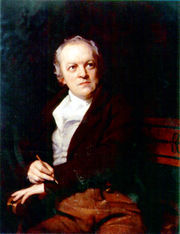
“Those that make the worst use of their time are the first to complain of its shortness.”
Jean de La Bruysre
“Live as if you were to die tomorrow. Learn as if you were to live forever.”
Mohandas Karamchand “Mahatma” Gandhi (October 2 1869 – January 30 1948) was an advocate and pioneer of nonviolence. He led the struggle for India’s independence from British colonial rule.
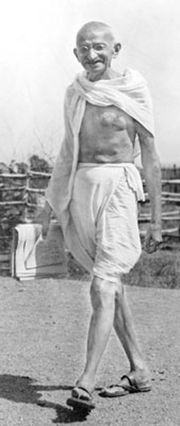
“There are some oddities in the perspective with which we see the world. The fact that we live at the bottom of a deep gravity well, on the surface of a gas-covered planet going around a nuclear fireball 90 million miles away and think this to be normal is obviously some indication of how skewed our perspective tends to be.”
Douglas Noël Adams (March 11, 1952, May 11, 2001). British author, comic radio dramatist, and amateur musician. He is known most notably as author of the Hitchhiker’s Guide to the Galaxy series.
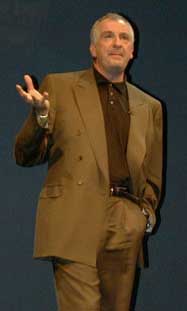
Douglas Adams died of a heart attack at the age of 49 on Friday 11 May 2001, while working out at a private gym in California.
“Luck affects everything. Let your hook always be cast; in the stream where you least expect it there will be fish.”
Publius Ovidius Naso (20 March 43 BC – AD 17) was a Roman poet known to the English-speaking world as Ovid, wrote on topics of love, abandoned women, and mythological transformations. Ranked alongside Virgil and Horace as one of the three canonical poets of Latin literature.
“Life’s big fallacy is security. There is none, ever. And I love that. I love the lack of security, of not knowing where the next buck’s going to come from. I love the need for adaptability. My kids can do anything they like as long as they don’t become lazy. If they become hoods, let them be the hardest working hoods around, not the footsoldiers.”
Alan Duff (b. 1950). New Zealand novelist (famous for Once Were Warriors), newspaper columnist, and polemicist. born and raised in a State housing area in Rotorua, New Zealand.
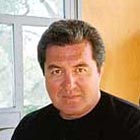
The Books in Homes scheme, launched in 1995 by Duff with commercial sponsorship and government support, aims to alleviate poverty and illiteracy by providing low-cost books to underprivileged children, thus encouraging them to read. In its first year alone it put about 180,000 new books in the hands of about 38,000 children.
Someone said to Voltaire, “Life is hard.” Voltaire replied, “Compared to what?”
François-Marie Arouet (21 November 1694, 30 May 1778), better known by the pen name Voltaire, was a French Enlightenment writer, essayist, deist and philosopher.

Voltaire is known for his sharp wit, philosophical writings, and defense of civil liberties, including freedom of religion and the right to a fair trial. He was an outspoken supporter of social reform despite strict censorship laws in France and harsh penalties for those who broke them. A satirical polemicist, he frequently made use of his works to criticize Church dogma and the French institutions of his day. Voltaire is considered one of the most influential figures of his time.
“Most men stumble over great discoveries. But most then pick themselves up and walk away.”
Sir Winston Churchill (30 November 1874, 24 January 1965)
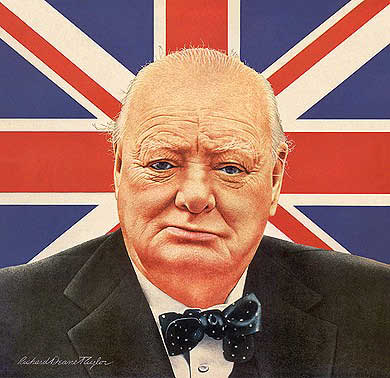
Prime Minister of the United Kingdom during the Second World War. Well known orator, strategist, soldier, author and politician, Churchill won the 1953 Nobel Prize in Literature for his many books on English and world history. Sir Winston Churchill was voted the Greatest-ever Briton in the 2002 BBC poll the 100 Greatest Britons.
“How do I know what I think until I hear what I say?”
Edward Morgan Forster (January 1, 1879 – June 7, 1970). English novelist, short story writer, and essayist. He is most famous for his novels, most of which have been filmed.
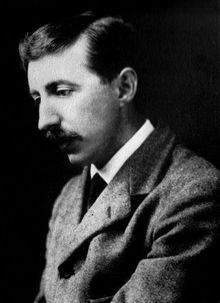
“In knowledge work, the task is not given, it has to be determined.”
Peter Ferdinand Drucker (November 19, 1909, November 11, 2005) Austrain management author & guru. Moved to USA in 1937, was naturalized in 1943. Professor of Management at New York University from 1950 to 1971. From 1971 to his death he was the Clarke Professor of Social Science and Management at Claremont Graduate University.
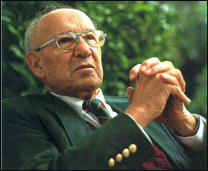
Drucker was interested in the growing importance of people who worked with their minds rather than their hands. He was intrigued by employees who know more about certain subjects than their bosses or colleagues and yet had to cooperate with others in a large organization. Drucker analyzed it and explained how it challenged the common thinking about how organizations should be run.
“A life spent making mistakes is not only more honorable, but more useful than a life spent doing nothing.”
George Bernard Shaw

“In matters of principal, stand like a rock.
In matters of taste, swim with the current.”
Thomas Jefferson 1743 – 1826

Thomas Jefferson was the third President of the United States (18011809), principal author of the Declaration of Independence (1776), and an influential Founding Father of the United States.
A political philosopher who promoted classical liberalism, republicanism, and the separation of church and state, he was the author of the Virginia Statute for Religious Freedom (1779, 1786), which was the basis of the Establishment Clause of the First Amendment of the United States Constitution.
“I don’t think much of people who have it in them to be first, but who finish second.”
Joseph Patrick Kennedy, Sr. (September 6, 1888, November 18, 1969) was a prominent United States businessman and political figure, the father of President John F. Kennedy (JFK) and Robert F. Kennedy (RFK), and the patriarch of the Kennedy political family.
“He that hath knowledge spareth his words.”
Francis Bacon (1561 – 1626), English Philosopher

“Your success as a family – our success as a society – depends not on what happens at the White House, but on what happens inside your house.”
Barbara Pierce Bush (born June 8, 1925) is the wife of the 41st President of the United States, George H. W. Bush, and was First Lady of the United States from 1989 to 1993.

“In leadership, in standing for principle, there is loneliness. But men and woman of integrity must live with their convictions. Unless they do so, they will be miserable.”
Gordon B. Hinckley
“There is nothing either good or bad but thinking makes it so.”

Author: William Shakespeare
“You have to decide what your highest priorities are and have the courage – pleasantly, smilingly, non-apologetically – to say no to other things.
And the way you do that is by having a bigger ‘YES’ burning inside.”
Author: Stephen Covey, author of The 7 Habits of Highly Effective People.
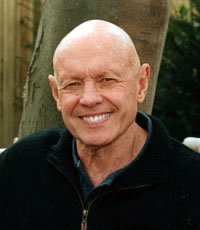
Covey defines a habit as “the intersection of knowledge, skill and desire.” The seven habits outlined by Covey are: be proactive, begin with the end in mind, put first things first, think “win-win,” seek first to understand — then to be understood, synergize and sharpen the saw.
Bill Gates allegedly gave this speech at a High School about 11 things they did not and will not learn in school.
He talks about how feel-good, politically correct teachings created a generation of kids with no concept of reality and how this concept set them up for failure in the real world.
”
Rule 1: Life is not fair – get used to it!
Rule 2: The world won’t care about your self-esteem. The world will expect you to accomplish something BEFORE you feel good about yourself.
Rule 3: You will NOT make $60,000 a year right out of high school. You won’t be a vice-president with a car phone until you earn both.
Rule 4: If you think your teacher is tough, wait till you get a boss.
Rule 5: Flipping burgers is not beneath your dignity. Your Grandparents had a different word for burger flipping: they called it opportunity.
Rule 6: If you mess up, it’s not your parents’ fault, so don’t whine about your mistakes, learn from them.
Rule 7: Before you were born, your parents weren’t as boring as they are now. They got that way from paying your bills, cleaning your clothes and listening to you talk about how cool you thought you were. So before you save the rain forest from the parasites of your parent’s generation, try delousing the closet in your own room.
Rule 8: Your school may have done away with winners and losers, but life HAS NOT. In some schools, they have abolished failing grades and they’ll give you as MANY TIMES as you want to get the right answer. This doesn’t bear the slightest resemblance to ANYTHING in real life.
Rule 9: Life is not divided into semesters. You don’t get summers off and very few employers are interested in helping you FIND YOURSELF. Do that on your own time.
Rule 10: Television is NOT real life. In real life people actually have to leave the coffee shop and go to jobs.
Rule 11: Be nice to nerds. Chances are you’ll end up working for one.
If you can read this – Thank a teacher!
If you are reading it in English – Thank a Veteran.
”
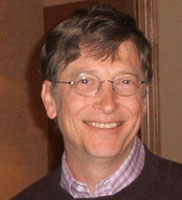
Author: Bill Gates (unconfirmed)
“Friend what is it that you seek?
What is it that you try to find?
Someday I hope you realized
It shined in you all the time.
Hills to climb, sights to see, seas to cross,
Friends to make, hands to shake, the world is yours,
Foods to taste, sounds to hear, love to feel,
Seeds to sow, things to know, fish to reel,
Space to quiz, stones to lift, Life’s a gift.”

Author: Faithless (Band) – from the song I Want More
“We could learn a lot from Crayons: Some are sharp, some are pretty, some are dull, while others bright, some have weird names, but we have to learn how to live in the same box. “
Author: Unknown
“It doesn’t matter if you’re a late bloomer as long as you don’t miss the flower show.”
Author: Jane Fonda
“Your work is to discover your work and then with all your heart give yourself to it.”
Buddha

“Of all the things I’ve lost, I miss my mind the most.”
Author: Ashley Brilliant